
The Delegation of the European Union to the United States, in partnership with the Atlantic Council’s Europe Center, hosted the EU-US Defense & Future Forum on June 22, 2022.
This year’s Forum combined two of the EU Delegation’s flagship events dedicated to furthering the dialogue on the transatlantic relationship: The second iteration of the EU-US Future Forum and the EU Defense Washington Forum, now in its 11th year.
With the support of
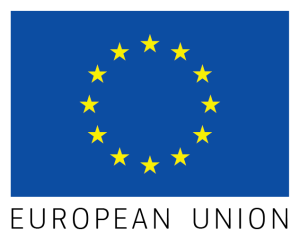
Coverage
Video playlist
Recaps
Transcripts
Quotes
Photos
Top press coverage
- Reuters: Senior EU official to urge U.S. to help fight Russian propaganda.
- La Formiche: Ucraina in Ue. La porta aperta di Stefano Sannino (con Wendy Sherman)
- Washington Post: Top EU official to U.S.: Don’t ‘throw away your shot’ to curb online harms
Social media
Agenda
8:30 a.m. – 8:45 a.m. Welcome remarks
FEATURING
Frederick Kempe, President and Chief Executive Officer, Atlantic Council
H.E. Stavros Lambrinidis, Ambassador of the European Union to the United States
8:45 a.m. – 9:15 a.m. Virtual keynote conversation
FEATURING
The Hon. Wendy Sherman, Deputy US Secretary of State
H.E. Stefano Sannino, Secretary-General, European External Action Service
MODERATED BY
Nick Schifrin, Foreign Affairs and Defense Correspondent, PBS NewsHour
9:20 a.m. – 10:00 a.m. EU-US digital policy agenda
FEATURING
Gerard de Graaf, Director, Digital Transformation, Directorate-General Communications Networks, Content & Technology, European Commission
MODERATED BY
Dr. Frances Burwell, Distinguished Fellow, Europe Center, Atlantic Council; Senior Director, McLarty Associates
Europe pushes ahead with setting new standards for the digital economy. Notably the recent agreements on the Digital Services Act (DSA) and the Digital Markets Act (DMA) are major milestones for how Europe wants to structure its digital economy that will carry with them implications for US tech and the transatlantic relationship.
How will actions on both sides of the Atlantic lead to greater economic resilience in key tech areas, including the response to the continuing supply chain crisis for key technology products and raw materials? Will US regulation match European ambitions on the digital economy? How can the EU and the United States cooperate in innovation through the Trade and Technology Council on key matters like chips, 5G technology, and digital infrastructure? Has the Russian war in Ukraine changed how the United States and the EU treat digital and tech policy, from supply chains to content regulation, and what can we expect from the DSA in terms of disinformation?
10:05 a.m. – 10:45 a.m. EU-US leadership in the global economy
FEATURING
Charles Lichfield, Deputy Director, GeoEconomics Center, Atlantic Council
Rupert Schlegelmilch, Director, The Americas, Agriculture and Food Safety; Acting Deputy Director-General, Directorate-General for Trade, European Commission
MODERATED BY
Marie Kasperek, Executive Director, Institute of International Economic Law, Georgetown University; Nonresident Senior Fellow, GeoEconomics Center, Atlantic Council
European and US leaders have been dealt a global economy transformed by the COVID-19 pandemic, its economic aftershocks, and now, Russia’s war against Ukraine. These events have brought into sharp focus a common realization of the United States’ and EU’s dependencies on third-party suppliers in critical sectors. Supply chains have continued to face disruptions, leading to shortages of key commodities, technology products, and raw materials around the world. In their rapid responses to these crises – the pandemic and Russia’s aggression – policymakers from Washington to Brussels have proven their determination to use powerful economic and financial instruments in both economic recovery efforts and on geopolitics, including on the sanctions front.
As we shift toward a more strategic policy response to global economic challenges, how can EU-US cooperation on economic and trade policy strengthen the resilience of the transatlantic economy while upholding a rules-based order? What quick wins can the transatlantic partners secure to rebuild momentum for the EU-US trade policy agenda? And what medium-term strategies on both sides of the Atlantic can sustain the EU and United States as competitive leaders in global trade and technology?
11:00 a.m. – 11:40 a.m. EU-US cooperation to enhance global food security
FEATURING
Dr. Cary Fowler, US Special Envoy for Global Food Security, US Department of State
Michael Scannell, Deputy Director-General, Directorate-General for Agriculture and Rural Development, European Commission
MODERATED BY
Sara Wyant, President and Chief Executive Officer, Agri-Pulse Communications
What can the EU and US agricultural sectors do to contribute to global food security in light of Russia’s aggression in Ukraine? What efforts from the EU and US administrations and policymakers are needed to mitigate supply chain disruptions, speculation, and trade restrictions specifically in agriculture production? How can the EU and the United States further increase cooperation on enhancing productivity growth and sustainable food system transformation for a resilient global food supply?
11:45 a.m. – 12:25 p.m. A joint EU-US approach towards energy security and the green transition
FEATURING
Ditte Juul Jørgensen, Director-General for Energy, European Commission
H.E. Piotr Naimski, Secretary of State, Government Plenipotentiary for Strategic Energy Infrastructure, Chancellery of the Prime Minister of the Republic of Poland
Melanie Nakagawa, Special Assistant to the President and Senior Director for Climate and Energy, White House National Security Council
WELCOME REMARKS BY
Ambassador Daniel Fried, Weiser Family Distinguished Fellow, Atlantic Council; Former US Ambassador to the Republic of Poland
MODERATED BY
Emily Meredith, Reporter and DC Deputy Bureau Chief, Energy Intelligence
Secure and reliable energy has become one of the key focuses for Europe following Russia’s invasion of Ukraine.
As Europe navigates the green transition and an increased urgency to find safe, reliable energy, how can the transatlantic relationship foster greater energy independence? What is the role of green energy in that effort? How should the EU and the United States navigate the dynamics between high ambitions for clean energy transition and greater energy security? What are the short-term and longer-term solutions to Europe’s dependence on Russian energy? Can this crisis help spur the transition to clean energy?
1:10 p.m. – 1:14 p.m. A special message from High Representative of the European Union for Foreign Affairs and Security Policy and Vice-President of the European Commission Josep Borrell
FEATURING
H.E. Josep Borrell, High Representative of the European Union for Foreign Affairs and Security Policy and Vice-President of the European Commission
1:15 p.m. – 2:00 p.m. EU-US-NATO strategic cooperation and response to Putin’s war in Ukraine
FEATURING
Ambassador Charles Fries, Deputy Secretary-General for Common Security and Defense Policy and Crisis Response, European External Action Service
Jānis Kažociņš, National Security Advisor to the President of the Republic of Latvia, Secretary of the National Security Council of the Republic of Latvia
Dr. Amanda Sloat, Special Assistant to the President and Senior Director for European Affairs, White House National Security Council
MODERATED BY
Vivian Salama, National Security Correspondent, The Wall Street Journal
Russia’s war in Ukraine has prompted a rethink in capitals across Europe. As Putin wages his war against the Ukrainian people, strategists across the Atlantic are reevaluating strategies to secure a rules-based liberal world.
What are the likely key elements of a new security environment in Europe in the wake of Russia’s aggression against Ukraine? How can the EU and NATO cooperate more effectively to respond to the new security environment in Europe? How can each actor play to its strengths while ensuring coordination and mutual reinforcement? How has the EU-US-NATO cooperation maximized the response to Russia’s war in Ukraine? What should the key priorities be for EU-NATO cooperation going forward?
2:05 p.m. – 2:40 p.m. The future of Europe’s defense capabilities in a transatlantic context
FEATURING
Max Bergmann, Director, Europe Program, Center for Strategic and International Studies
Diego de Ojeda García-Pardo, Head of Unit for Coordination of Foreign, Security and Defense Policy, Secretariat General of the European Commission
Lieutenant General Giovanni Manione, Deputy Director General of the EU Military Staff, European External Action Service
MODERATED BY
Kevin Baron, Executive Editor, Defense One
Is European defense a sleeping giant? A growing focus on Europe’s defense capabilities will be critical for transforming Europe’s role in the transatlantic defense and security relationship.
What will a strengthened European defense look like and how will this fit into transatlantic defense cooperation? How will the EU translate the Strategic Compass and initiatives like PESCO and the EDF into a more concerted and cohesive security and defense policy with stronger capabilities? How can the EU and its Member States ensure that their efforts to increase spending and develop new capabilities avoid duplication and fragmentation? How can we close short- and long-term capability gaps, boost defense investment and innovation and further strengthen transatlantic armaments cooperation?
2:40 p.m. – 3:00 p.m. A spotlight conversation with Principal Deputy National Security Advisor Jon Finer
FEATURING
Jon Finer, Principal Deputy National Security Advisor, The White House
MODERATED BY
Vivian Salama, National Security Correspondent, The Wall Street Journal
3:05 p.m. – 3:45 p.m. The EU as a security actor beyond its neighborhood
FEATURING
Major General Cyril Carcy, Defense Attaché, Embassy of France in the United States
The Hon. Mara Karlin, Assistant Secretary of Defense for Strategy, Plans, and Capabilities, US Department of Defense
Lieutenant General Giovanni Manione, Deputy Director General of the EU Military Staff, European External Action Service
MODERATED BY
Missy Ryan, National Security Reporter, The Washington Post
Russia’s aggression against Ukraine has consequences beyond Europe. The implications of Russia’s war underline difficult questions about Europe’s role not just on the continent but also beyond its neighborhood.
How should Europe balance its ambitions with its capabilities for engagement around the world? What are the opportunities for further EU-US security cooperation around the world? Should Europe focus on specific geographic areas or commit to a broader global engagement? What are the lessons learned from the EU’s current military missions abroad?
3:50 p.m. – 4:30 p.m. EU-US cooperation on addressing hybrid security threats
FEATURING
Jennifer Bachus, Senior Bureau Official and Principal Deputy Assistant Secretary, Bureau of Cyberspace and Digital Policy, US Department of State
Rasmus Hindrén, Head of International Relations, European Centre of Excellence for Countering Hybrid Threats
Bret Schafer, Senior Fellow and Head, Information Manipulation Team, Alliance for Securing Democracy
MODERATED BY
Emerson Brooking, Senior Fellow, Digital Forensics Research Lab, Atlantic Council
Some of the biggest threats to Europe and the United States continue to be gray-zone hybrid threats, including state-sponsored disinformation campaigns, cyber-attacks, and the manipulation of migration.
How can the EU and the United States counter disinformation, cyber, and other hybrid threats in a coordinated way? How will the EU implement the goals laid out in the Strategic Compass? How can cooperation with the United States and NATO maximize the response when it comes to new security threats? How can transatlantic coordination be improved to counter state-sponsored or state-aligned hybrid attacks?
4:45 p.m. – 5:25 p.m. A transatlantic approach towards China and the Indo-Pacific
FEATURING
Camille P. Dawson, Deputy Assistant Secretary, Bureau of East Asian and Pacific Affairs, US Department of State
Gabriele Visentin, EU Special Envoy for the Indo-Pacific, European External Action Service
MODERATED BY
Demetri Sevastopulo, US-China Correspondent, Financial Times
China and the Indo-Pacific is a growing focus for both sides of the Atlantic, as US and European policymakers pursue different strategies for engagement in the region.
What does the role of China and a growing focus on the Indo-Pacific mean for the transatlantic relationship? As the United States balances foreign policy priorities between a long-term pivot to China while addressing the immediate need to focus on Russia, and Europe debates its role in the Indo-Pacific, how can EU and US policymakers best align their policies for the region? How can Europe more effectively counter security challenges from China, especially on the cyber and technology front?
5:30 p.m. – 6:00 p.m. Democratic resilience: Our response to disinformation in the digital age | A keynote address with European Commission Vice-President Věra Jourová
FEATURING
H.E. Věra Jourová, Vice-President of the European Commission for Values and Transparency
MODERATED BY
Cristiano Lima, Business Reporter and Author, Technology 202 Newsletter, The Washington Post
6:00 p.m. – 7:30 p.m. In-person reception
FEATURING
Ambassador Dereck Hogan, Principal Deputy Assistant Secretary, Bureau of European and Eurasian Affairs, US Department of State
INTRODUCED BY
H.E. Stavros Lambrinidis, Ambassador of the European Union to the United States
Speakers
Subscribe to our newsletters
Subscribe to the Europe Center’s Weekly EuropeWatch Newsletter
Sign up for the Europe Center newsletter to receive the latest on Europe, transatlantic relations, and related programming.
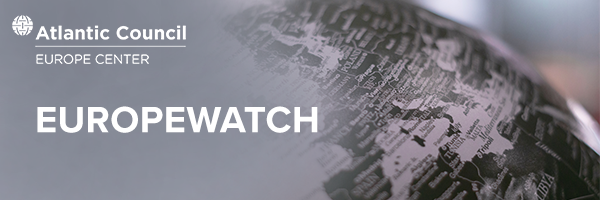

The Europe Center promotes leadership, strategies, and analysis to ensure a strong, ambitious, and forward-looking transatlantic relationship.
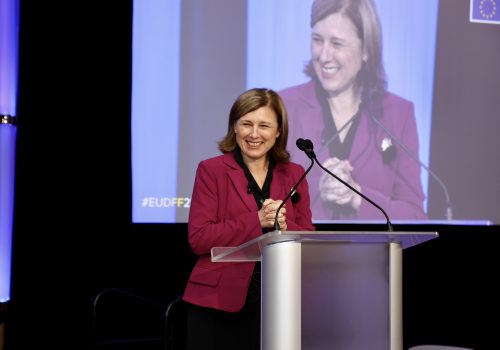
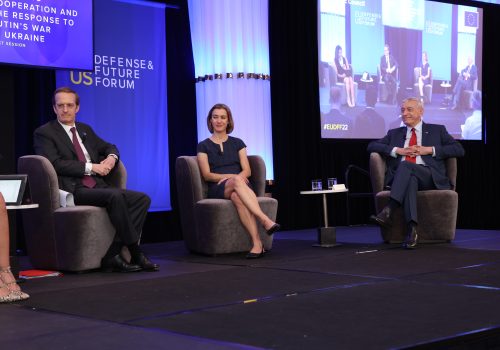
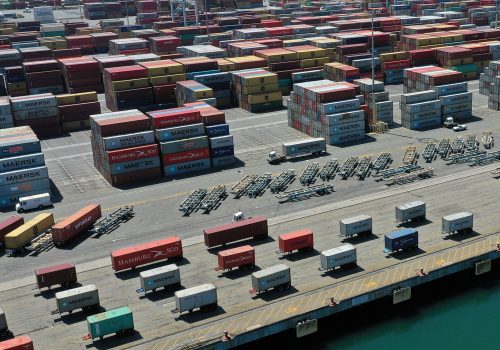
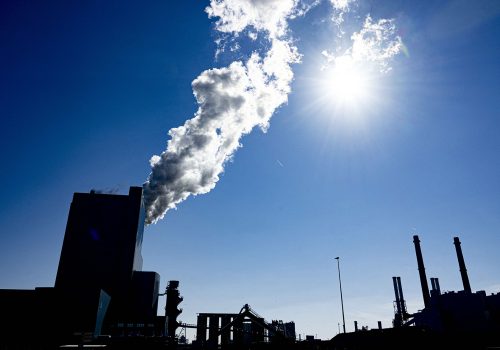
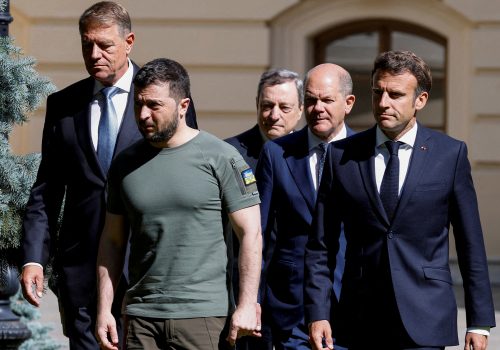
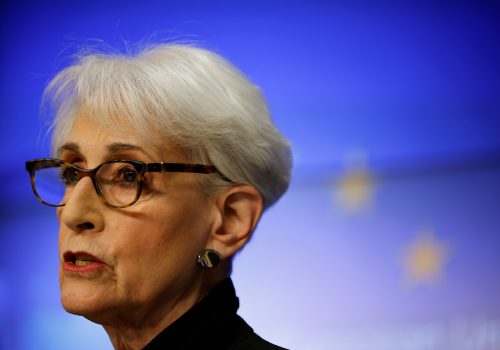
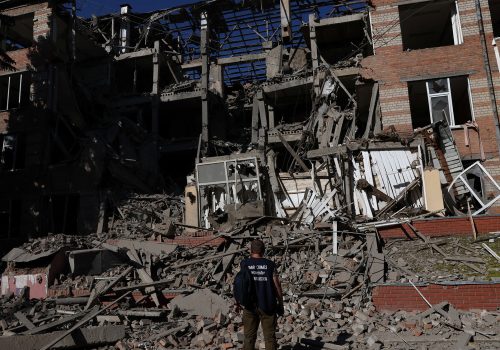
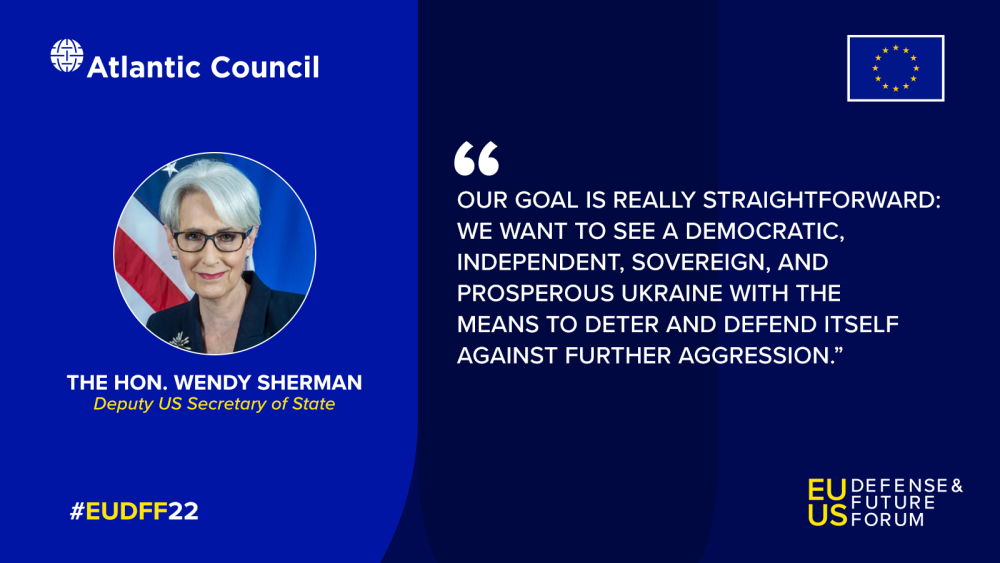
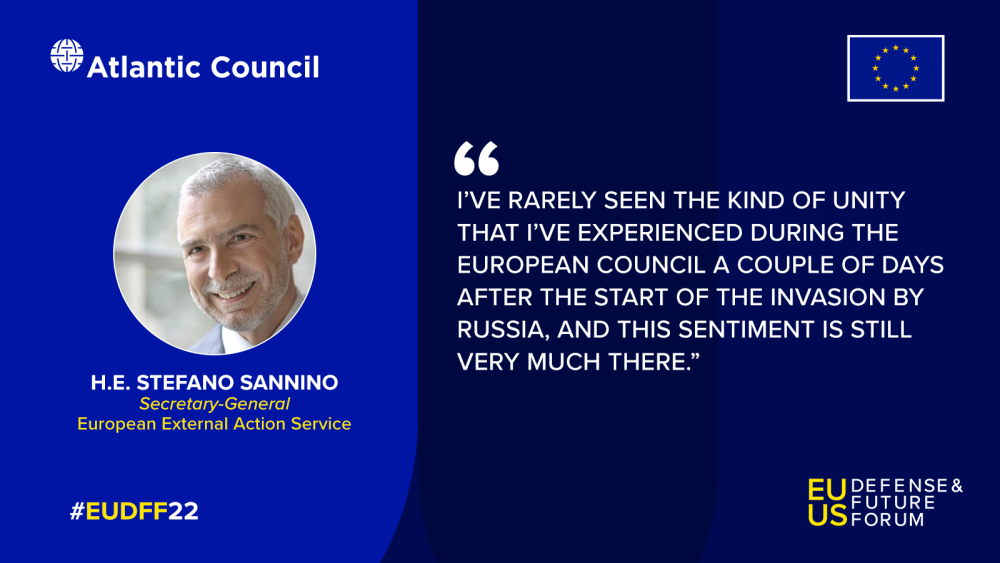
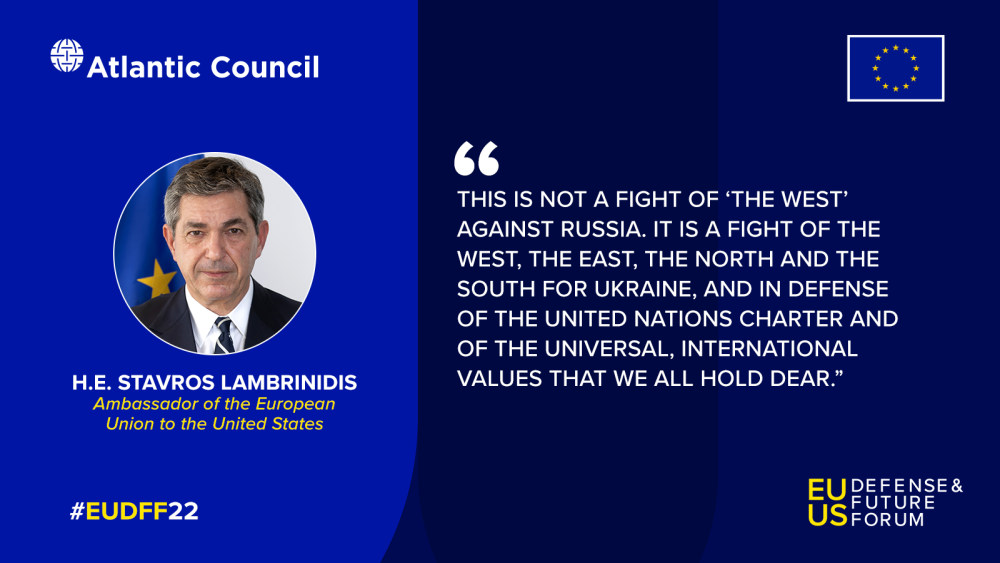
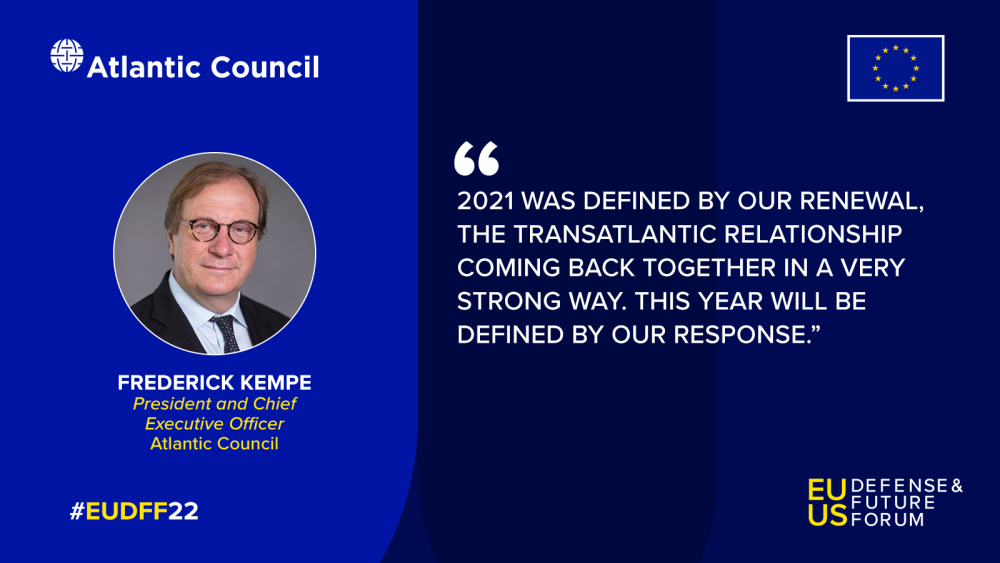
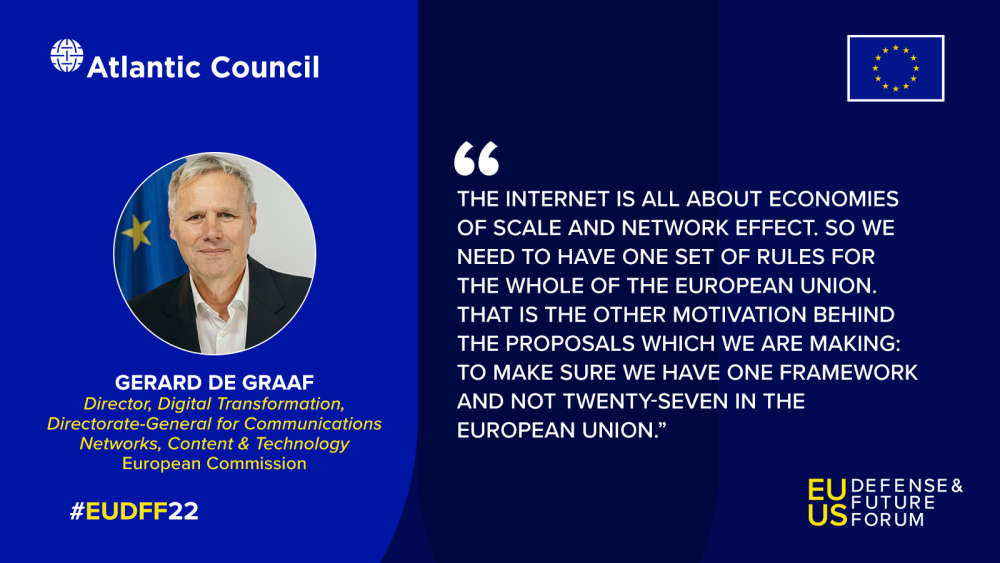
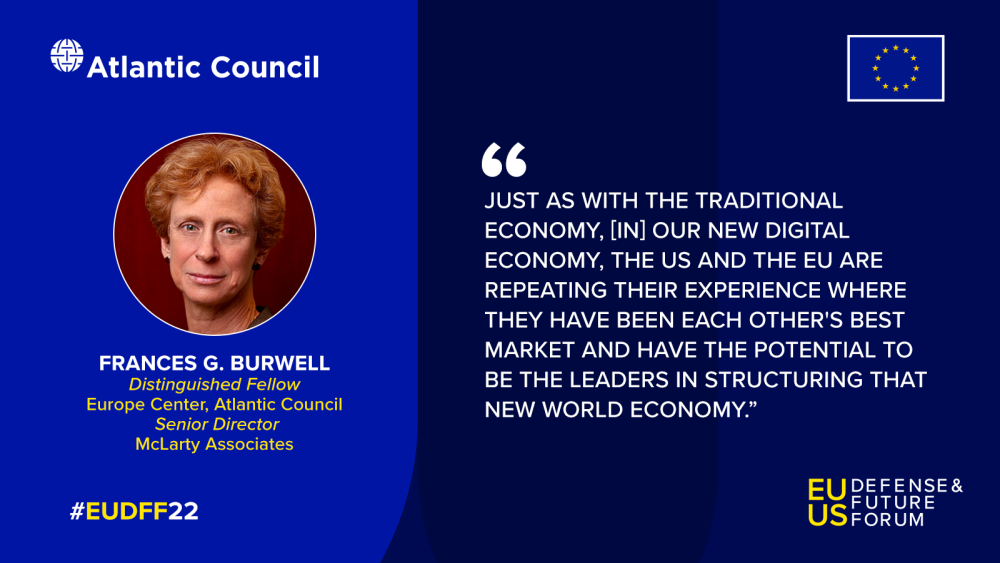
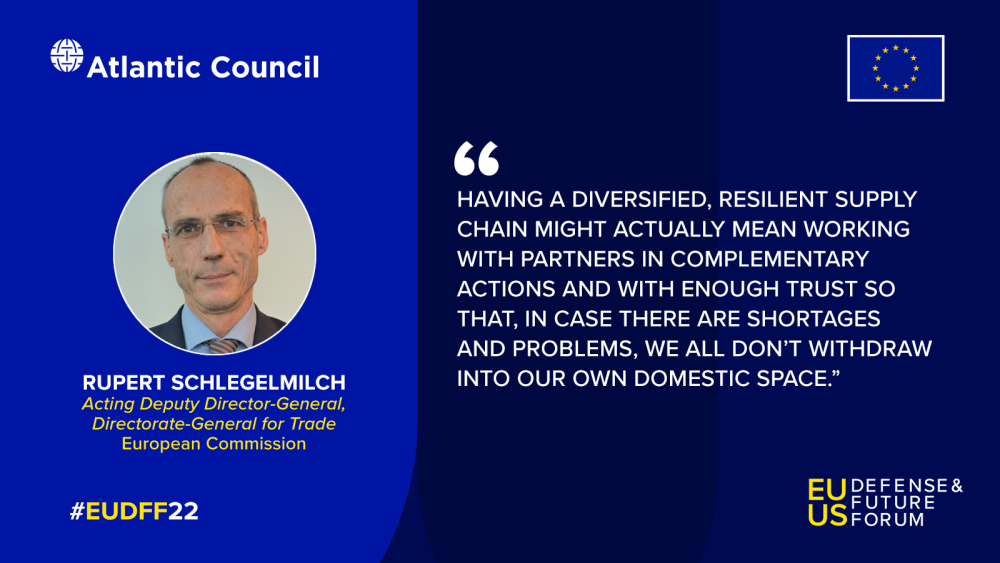
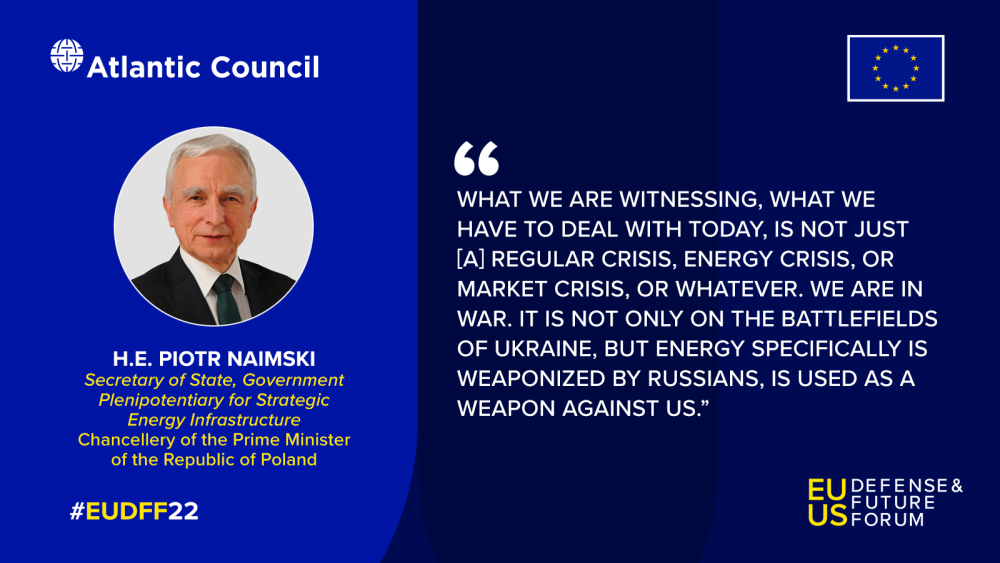
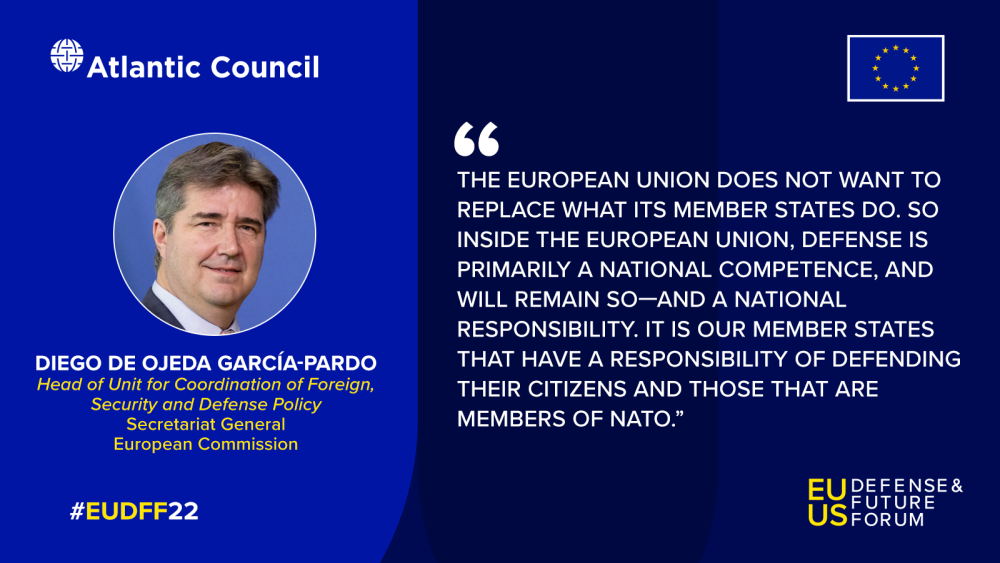
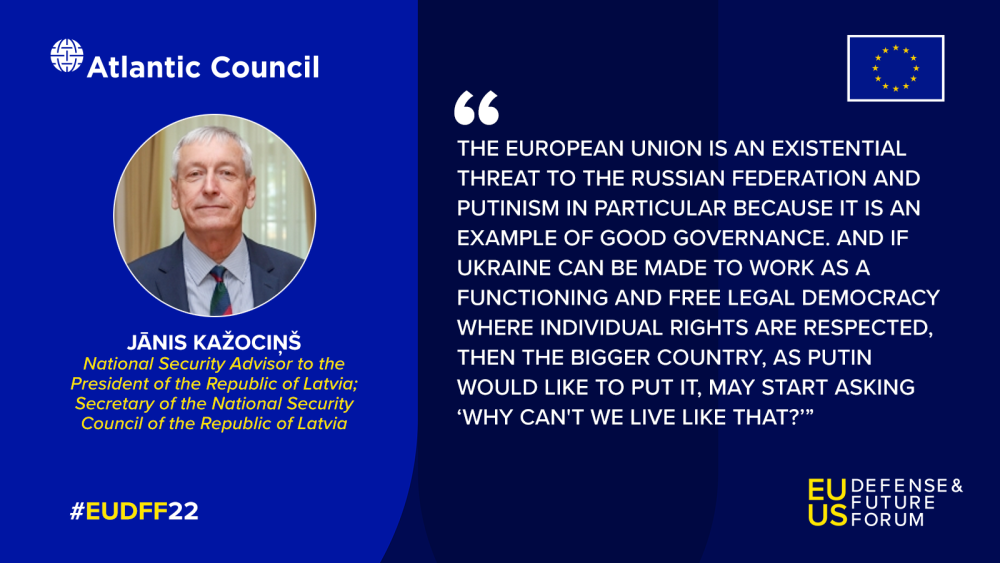
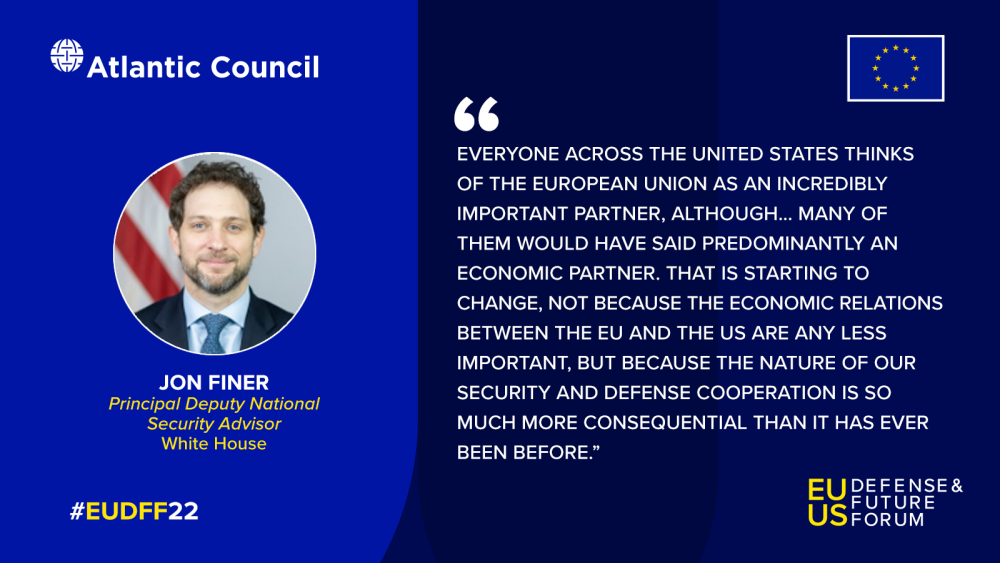
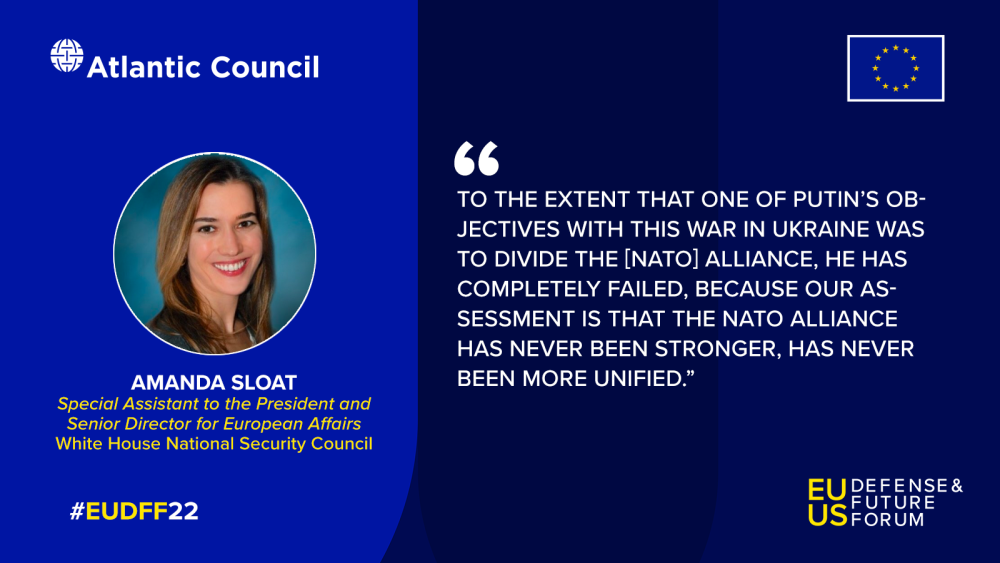
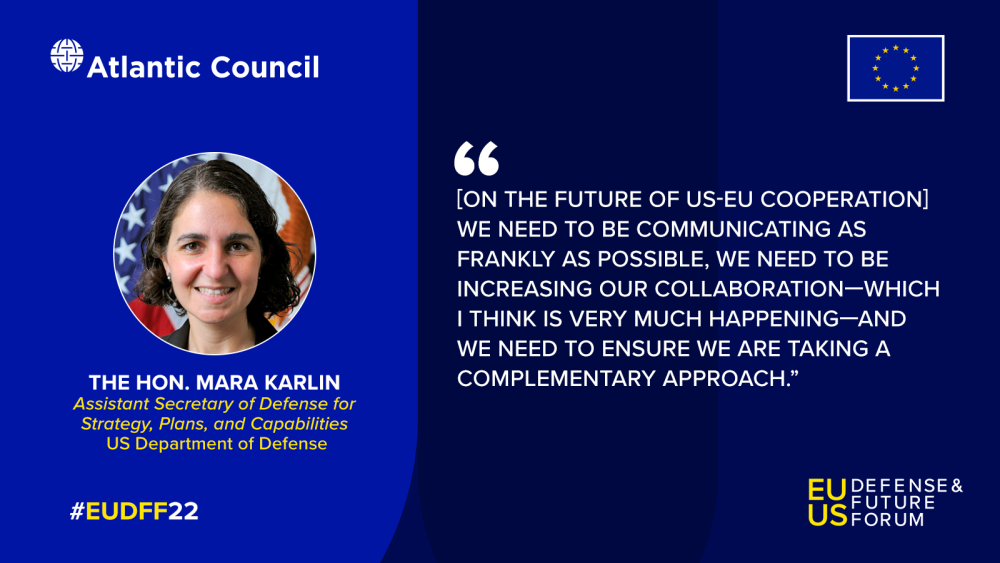
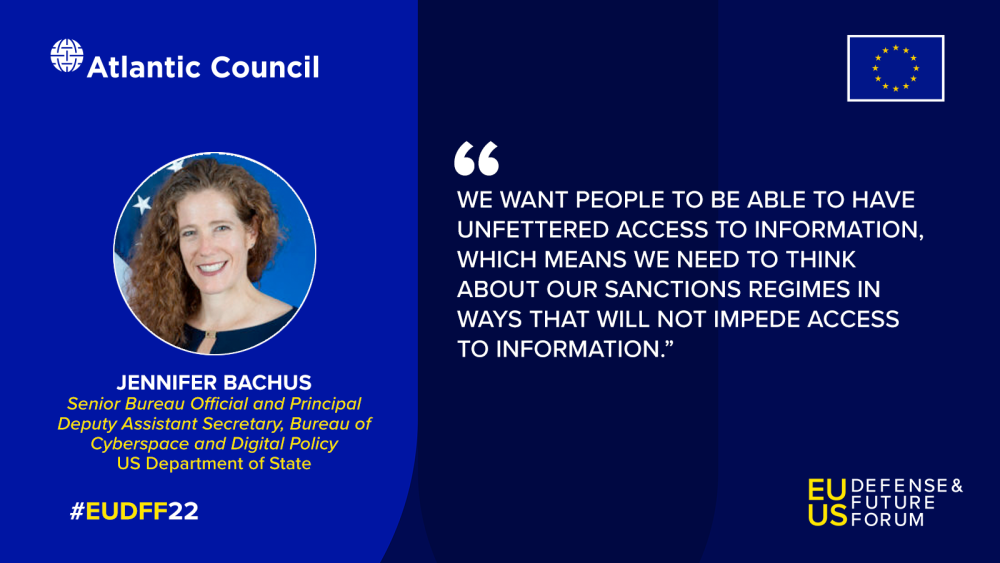
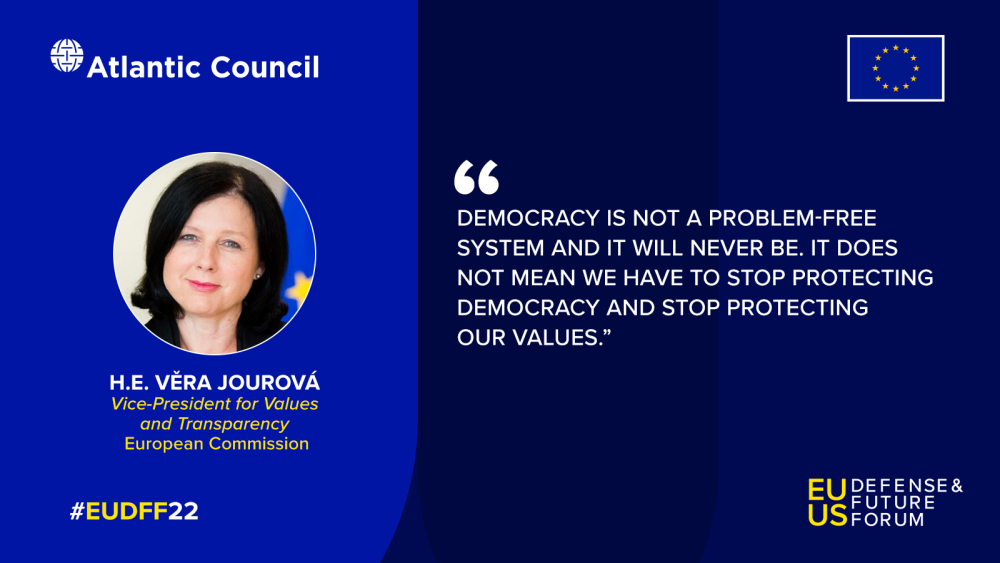
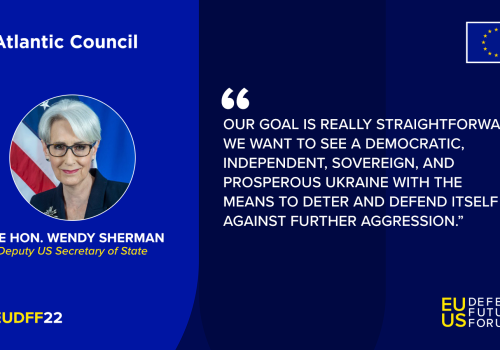
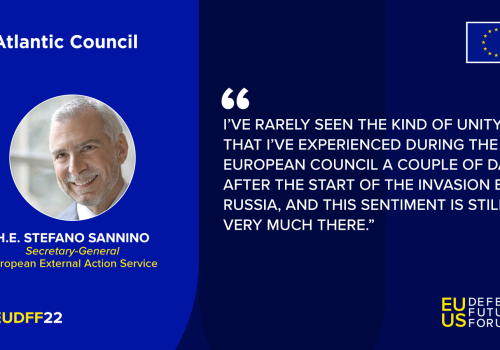
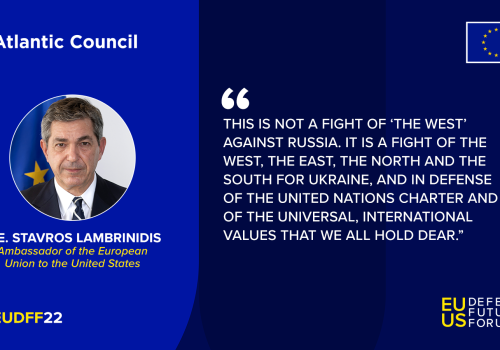
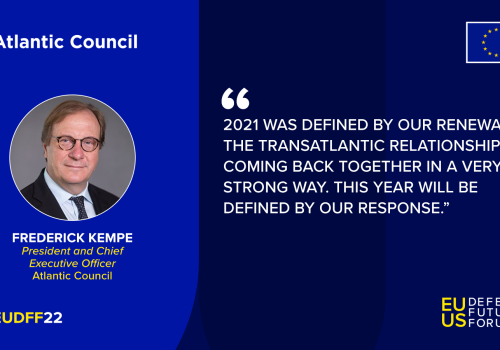
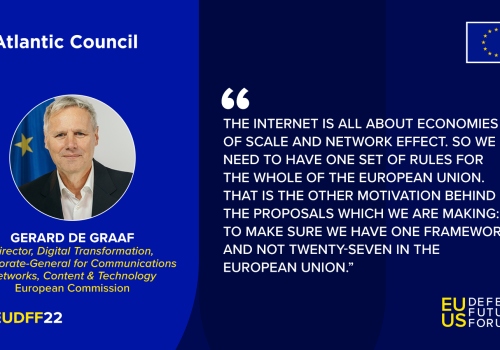
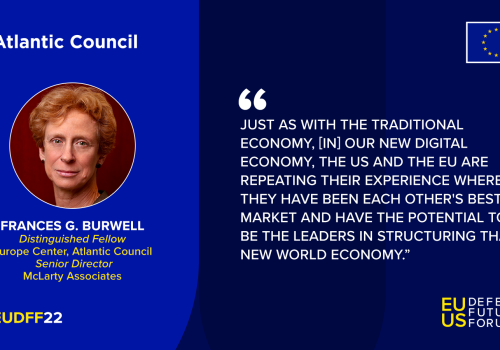
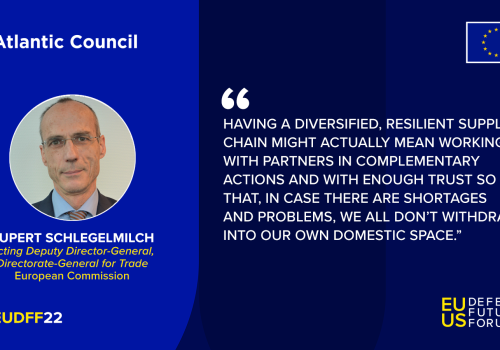
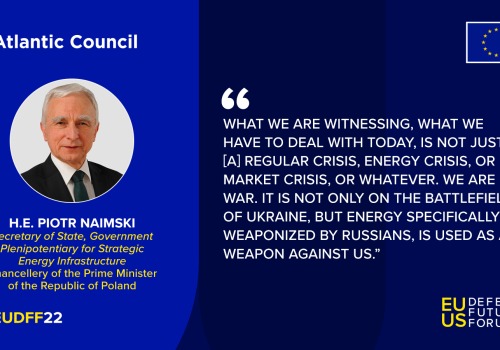
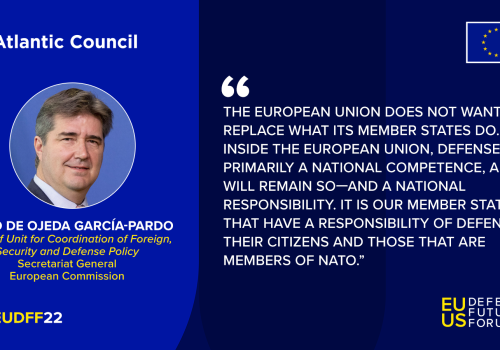
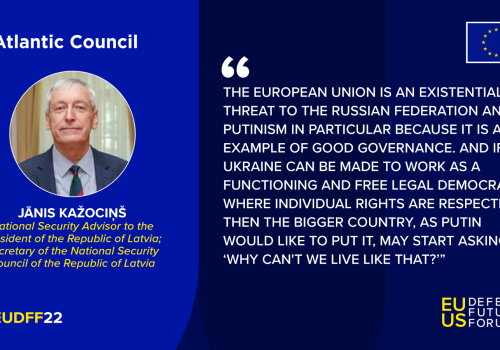
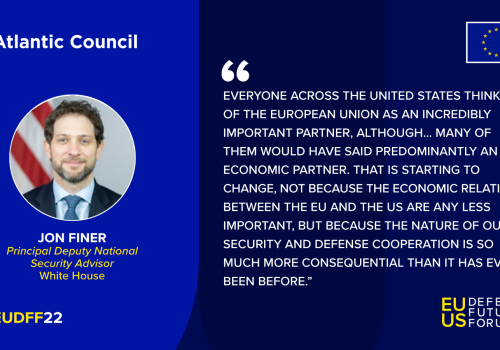
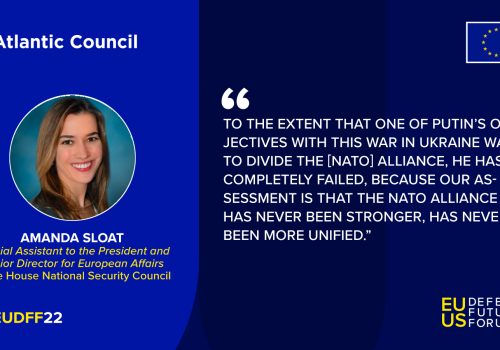
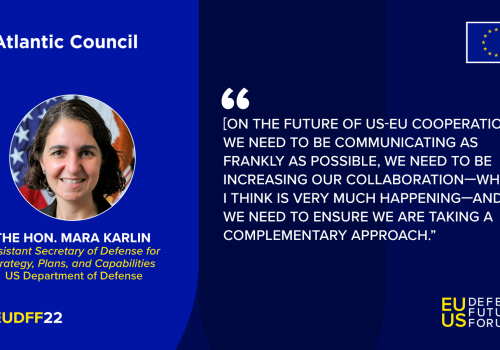
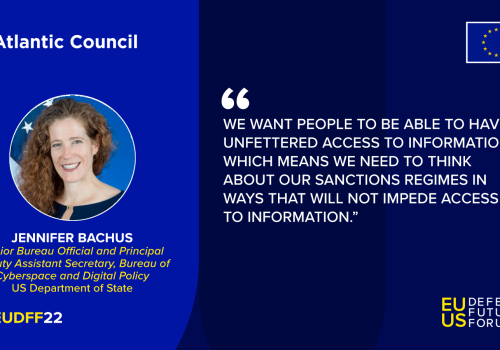
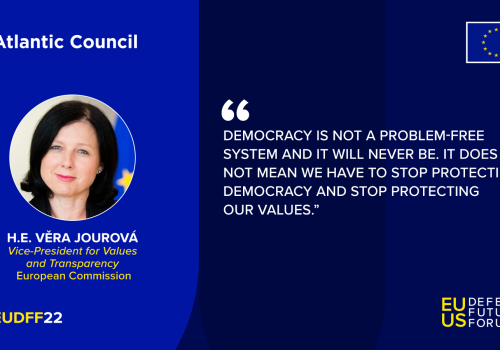
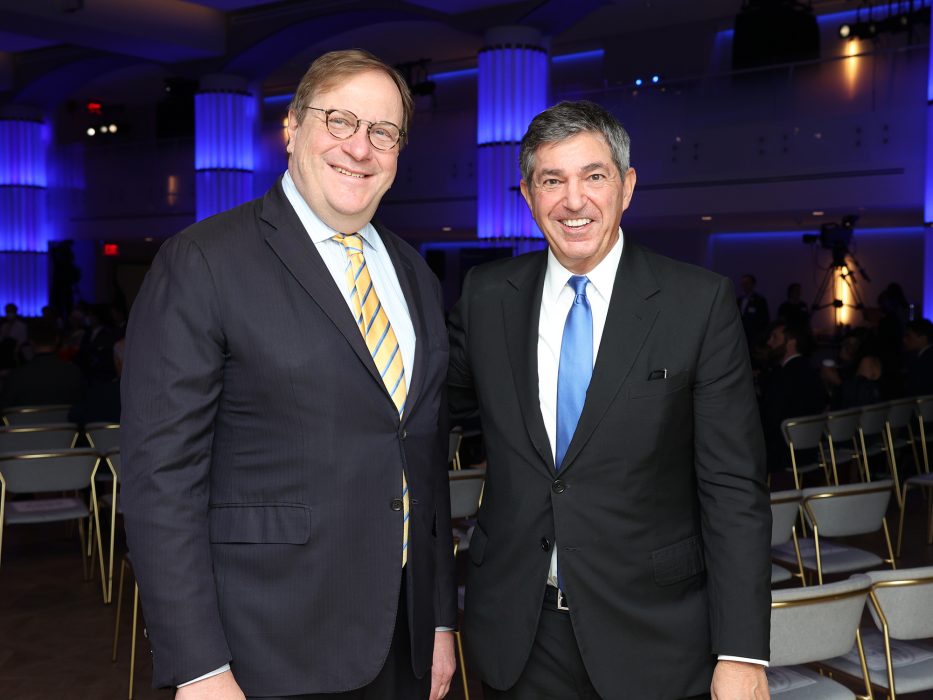
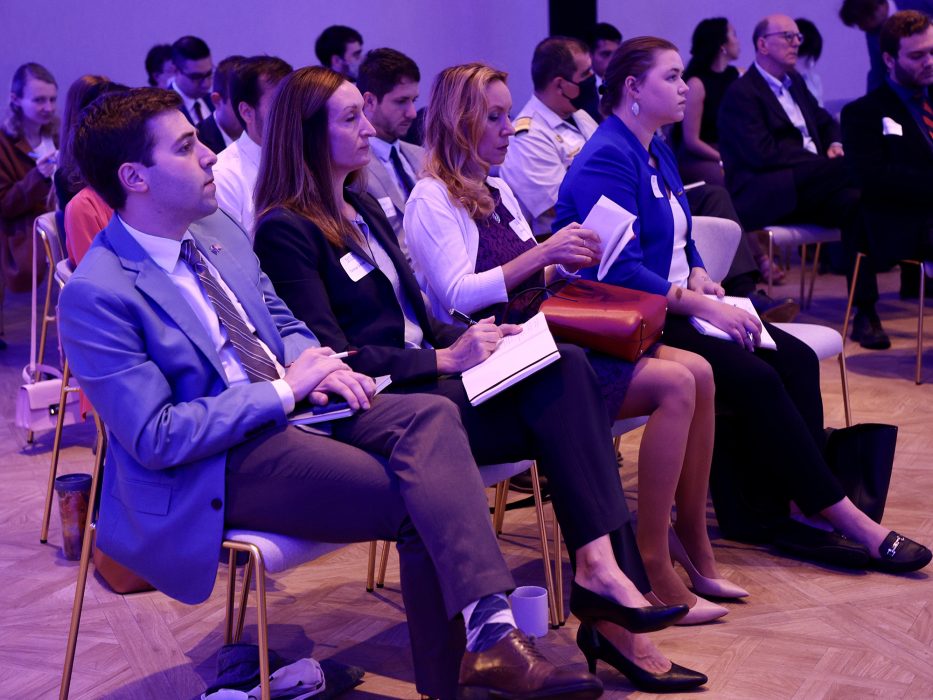
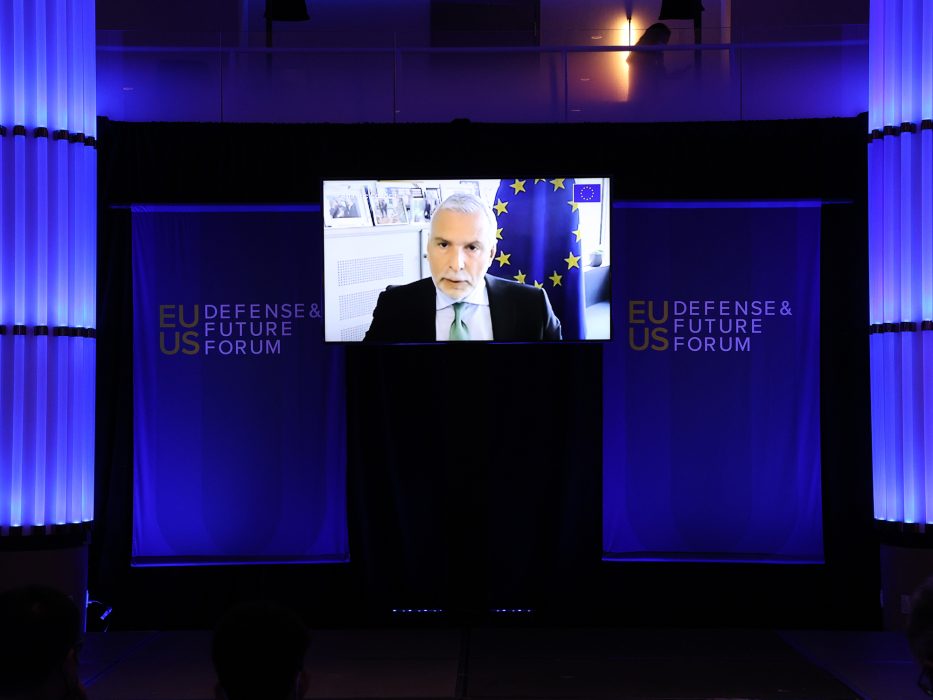
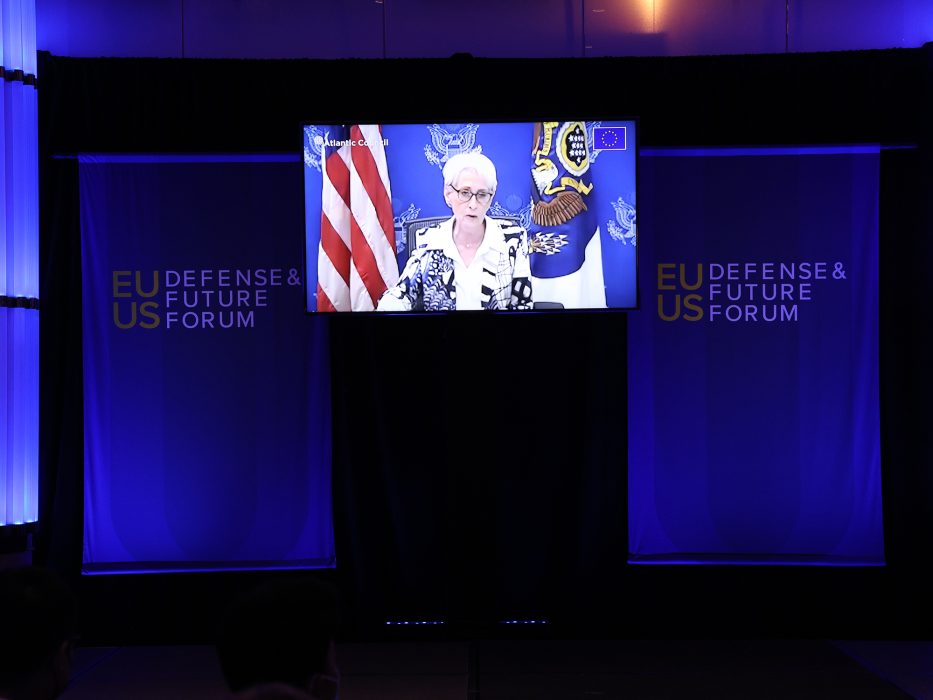
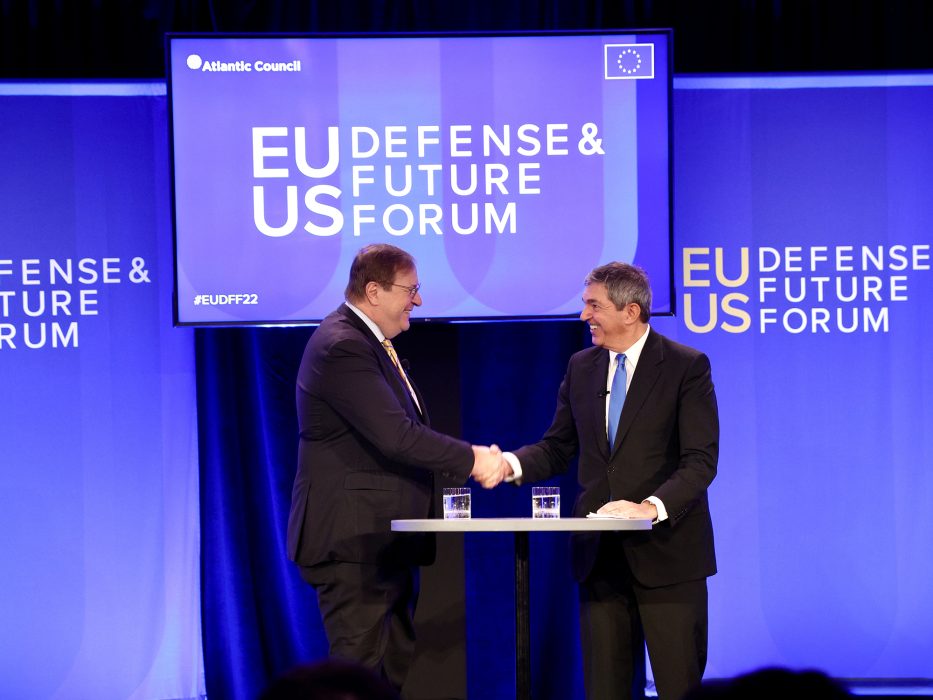
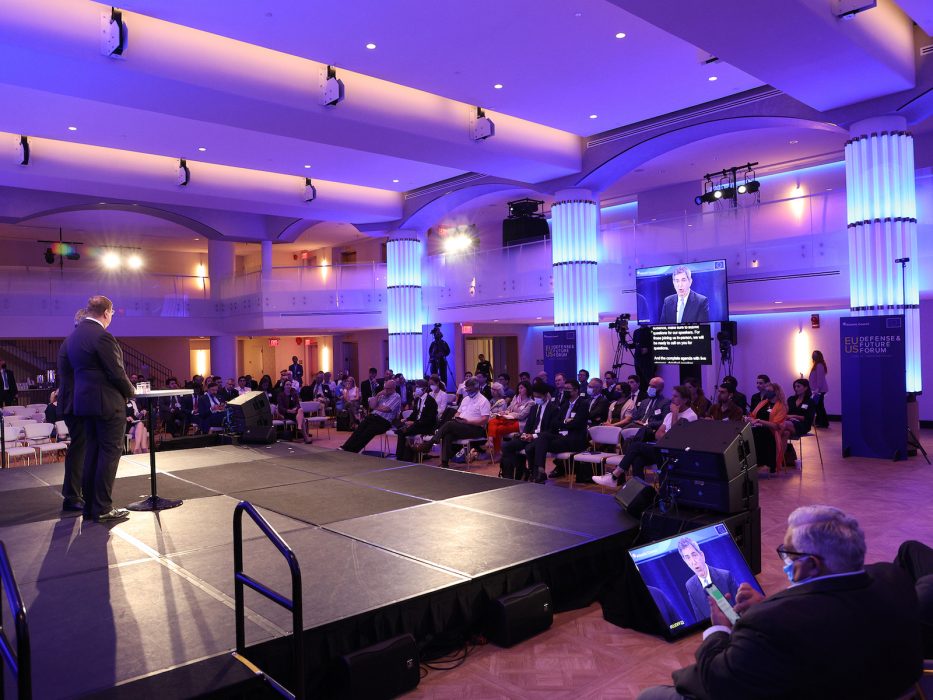
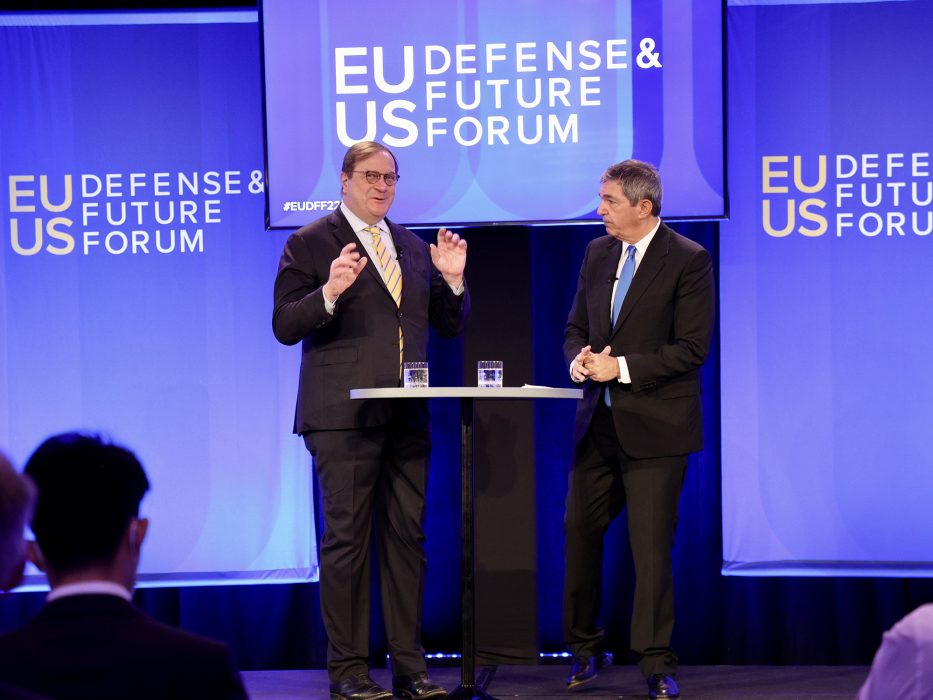
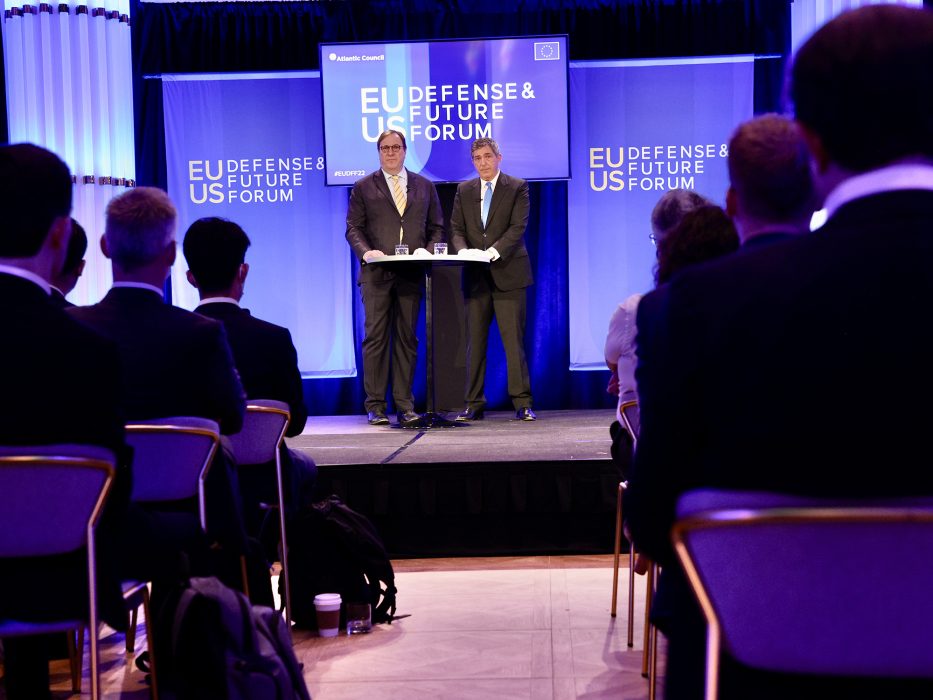
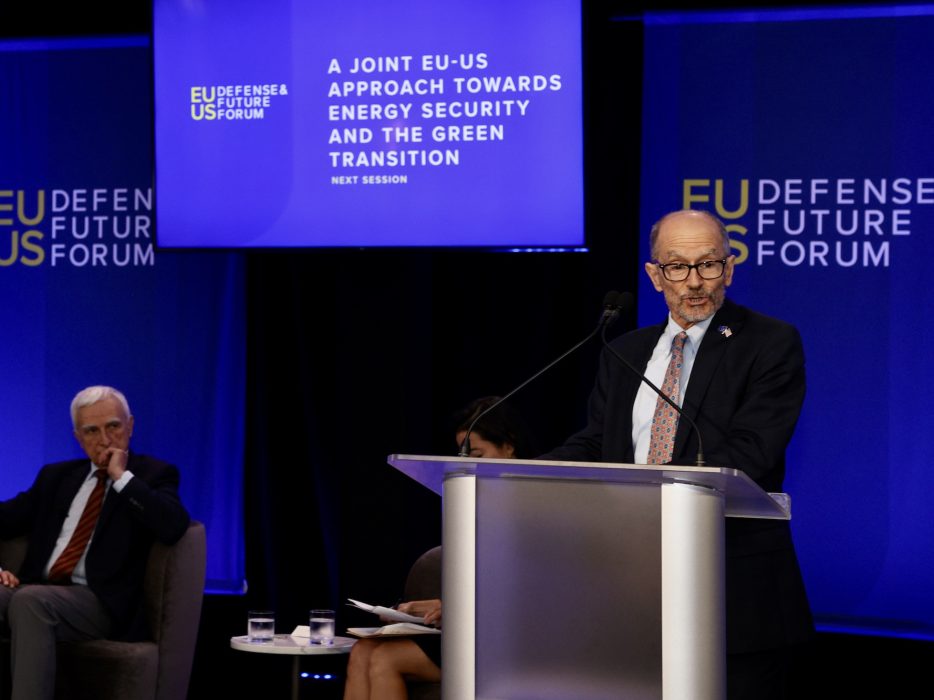
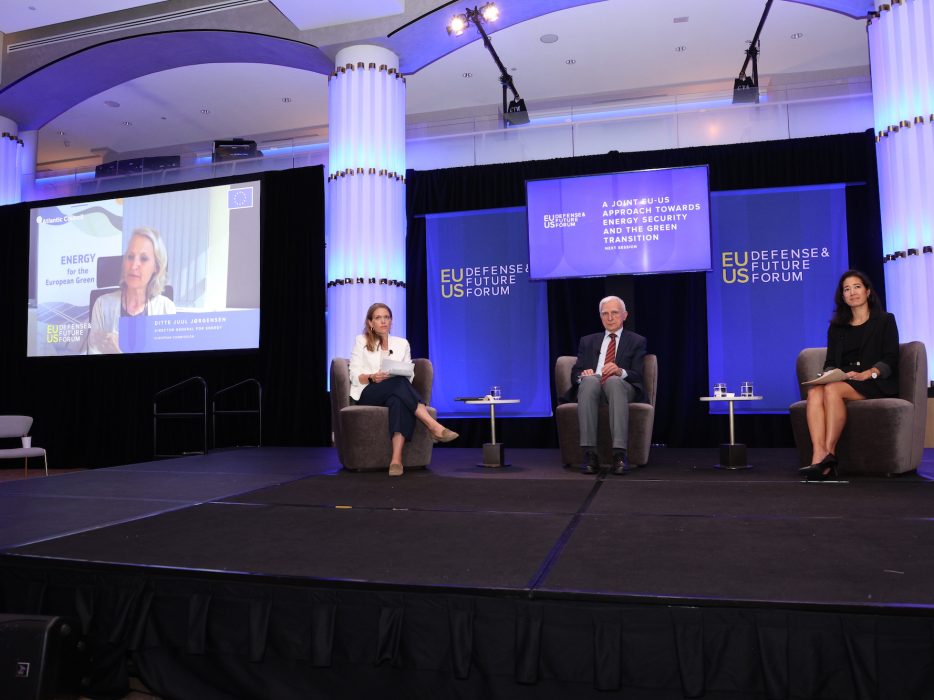
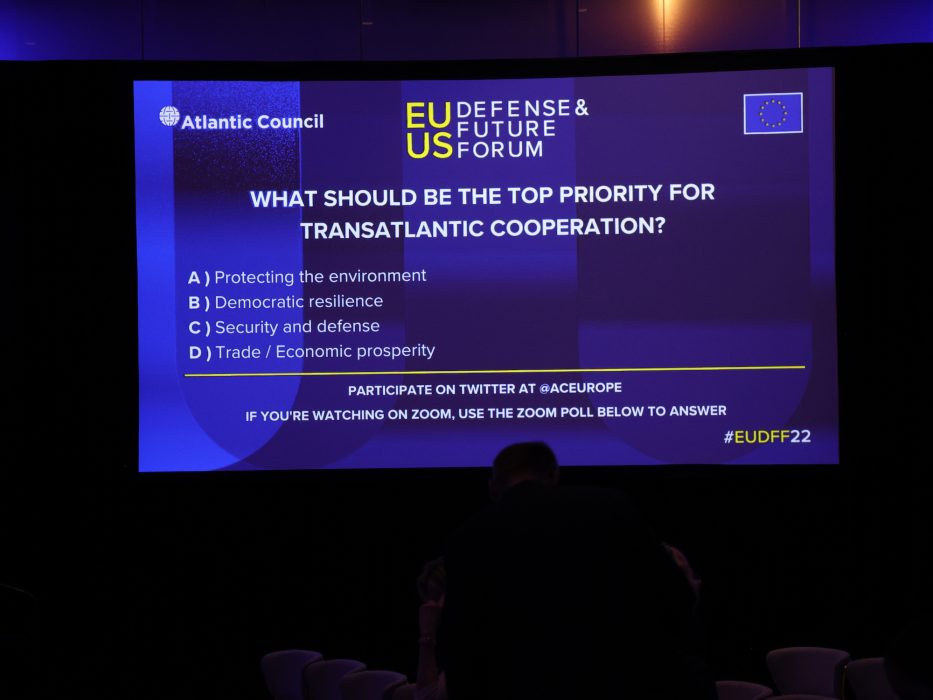
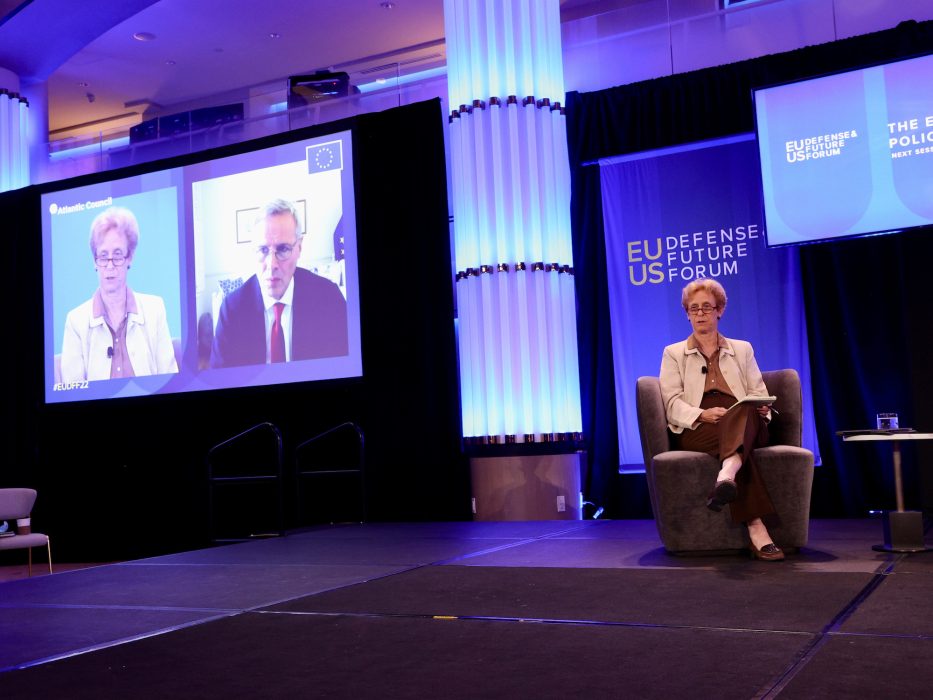
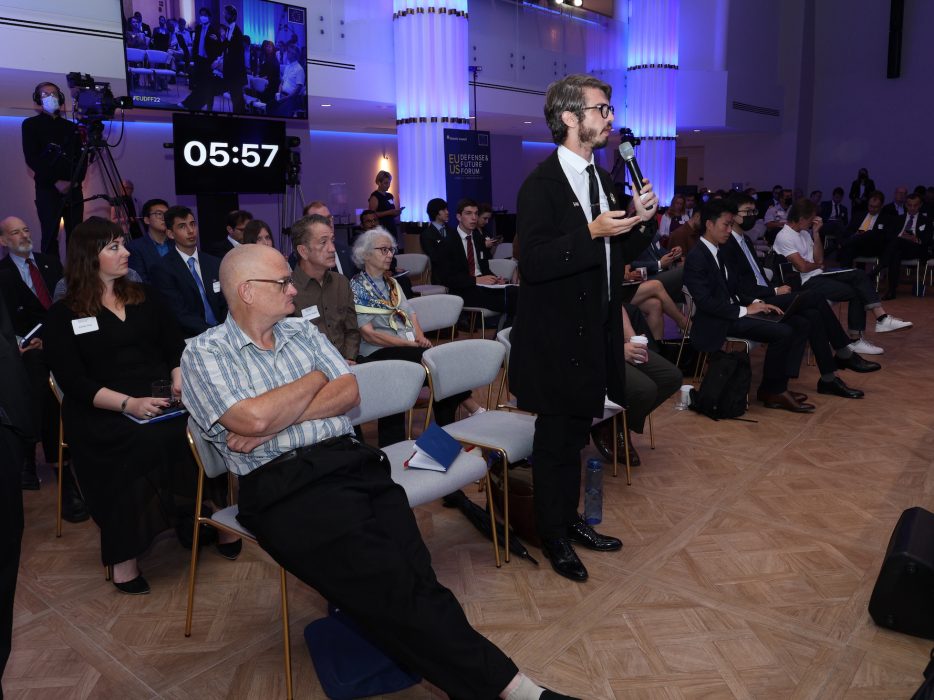
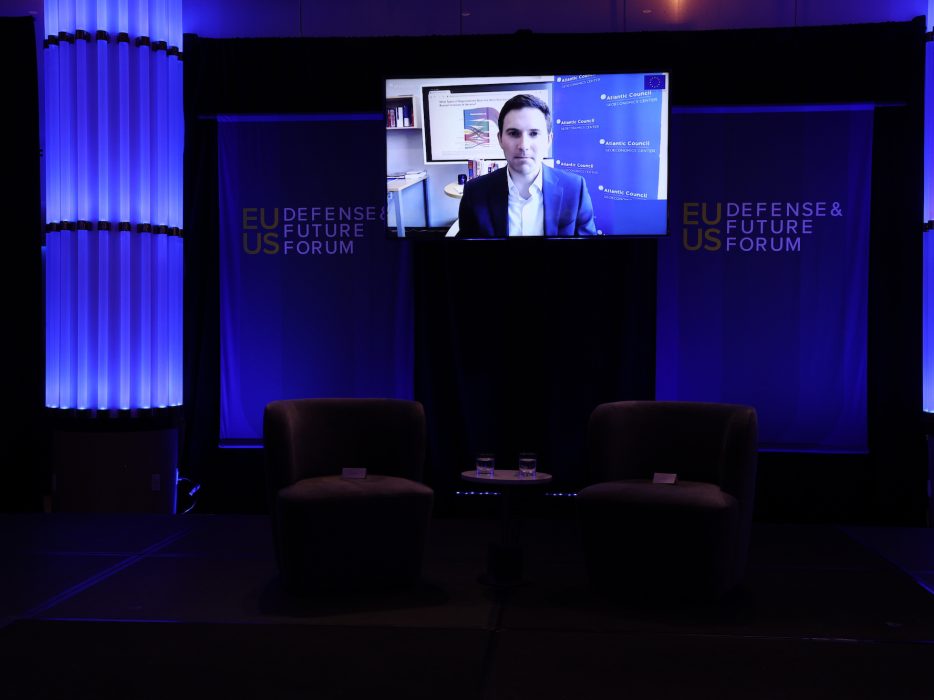
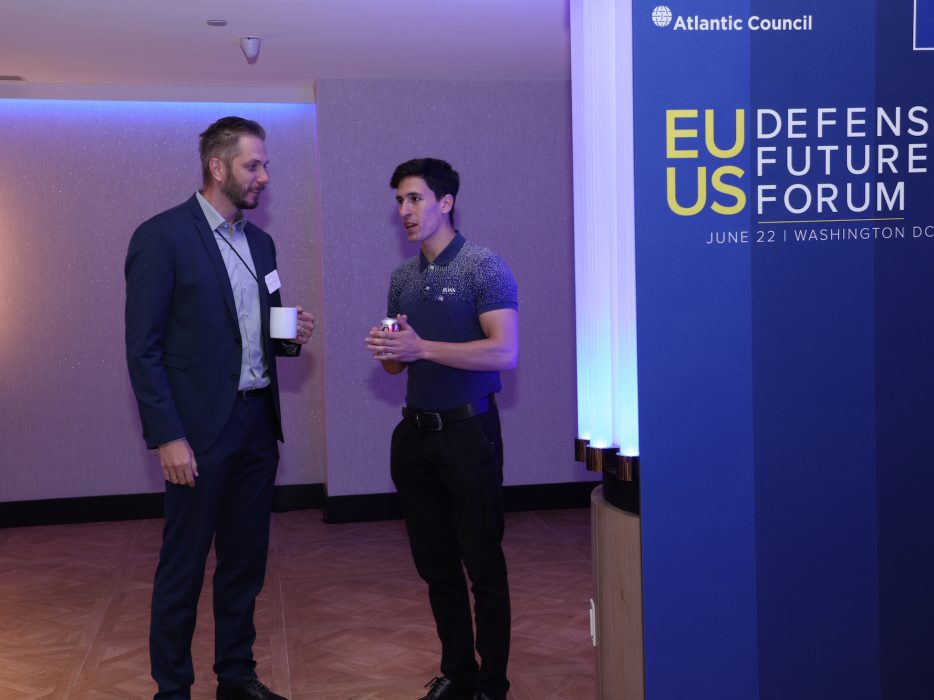
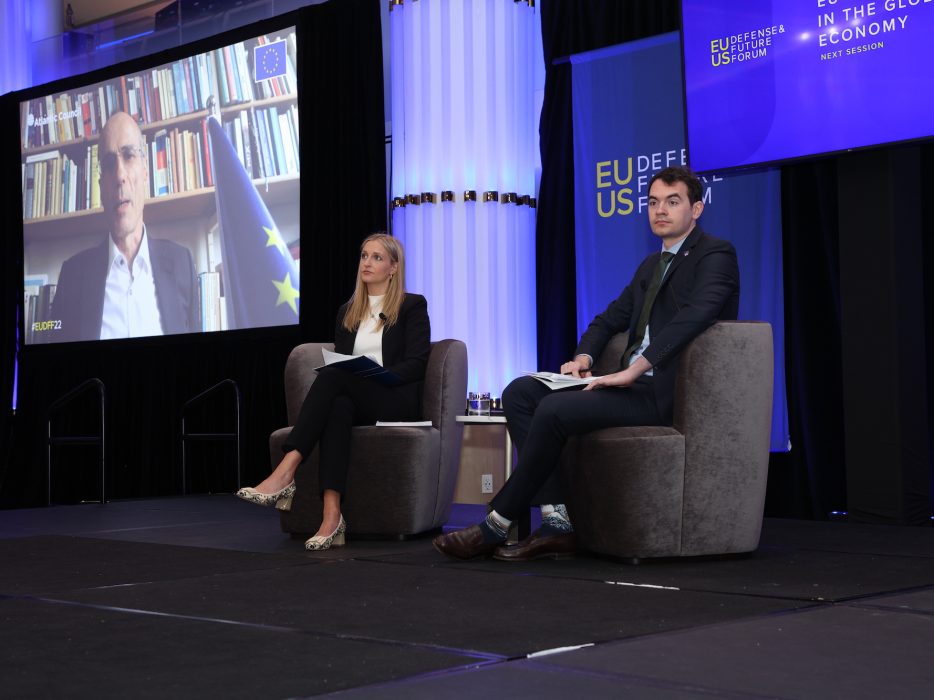
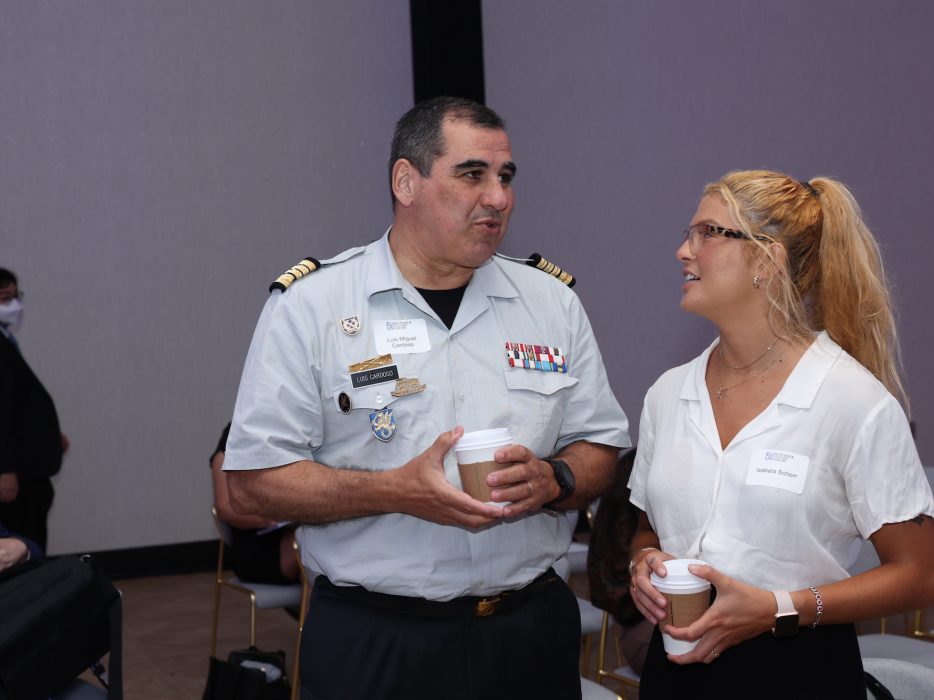
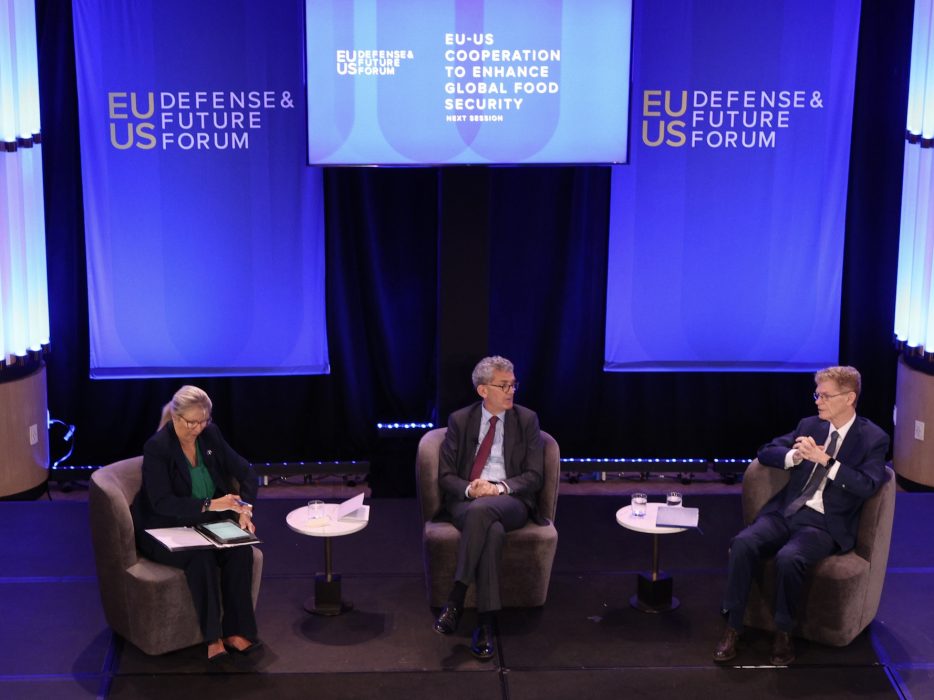
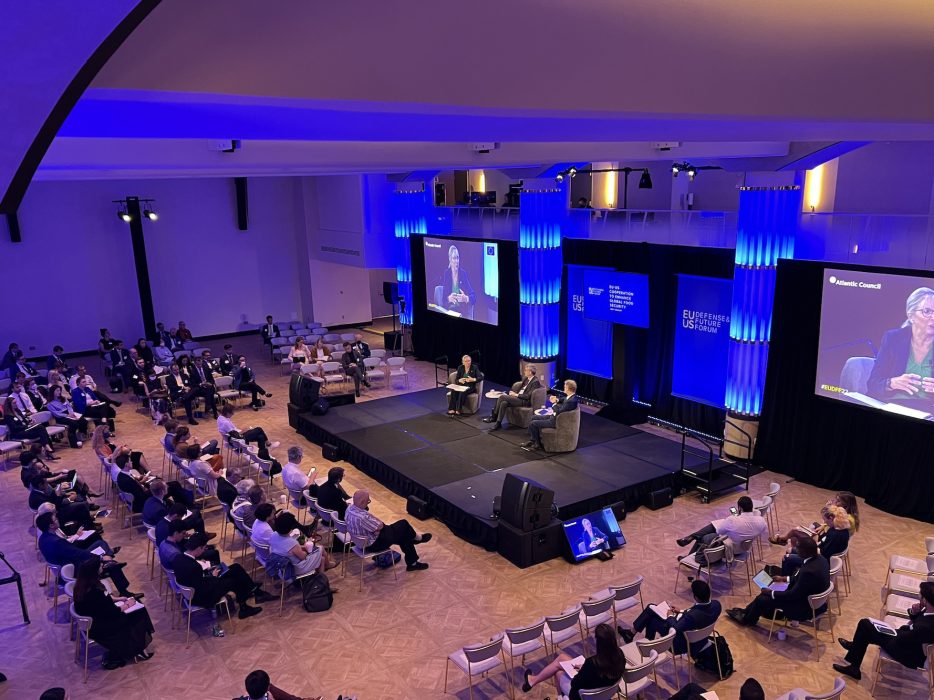
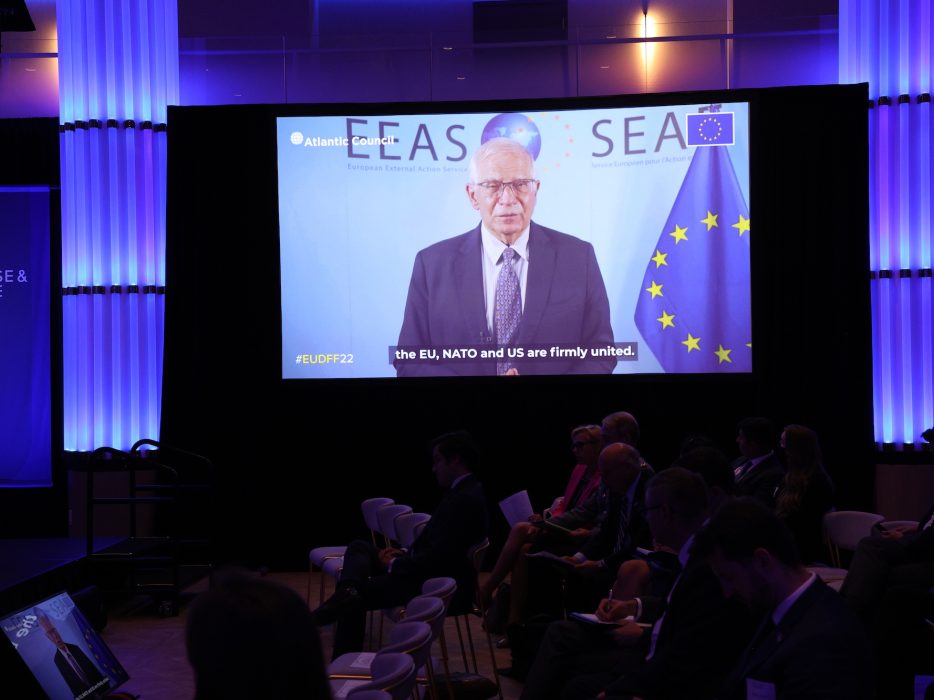
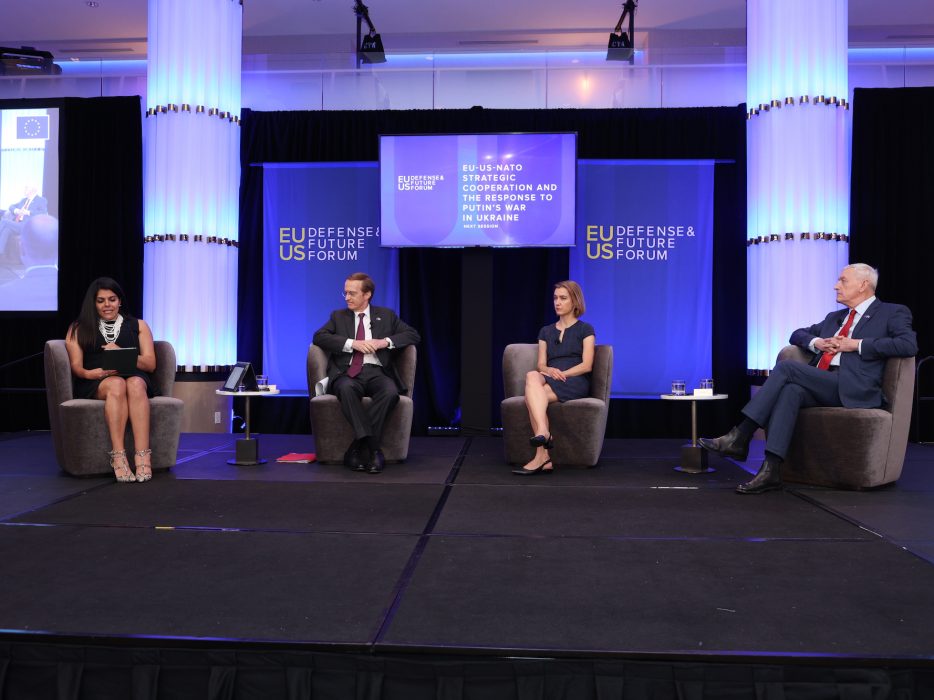
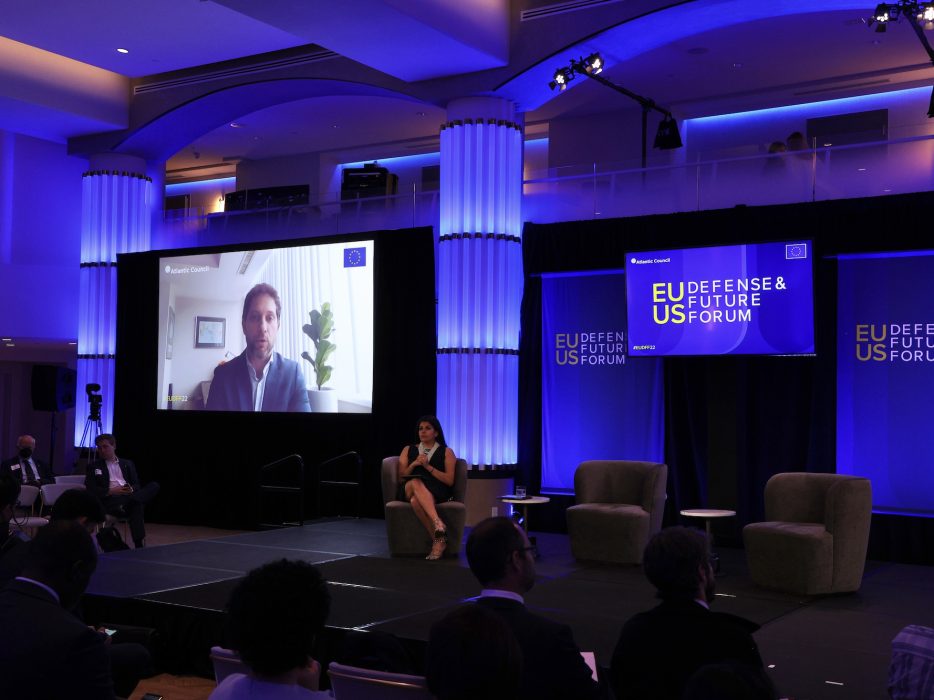
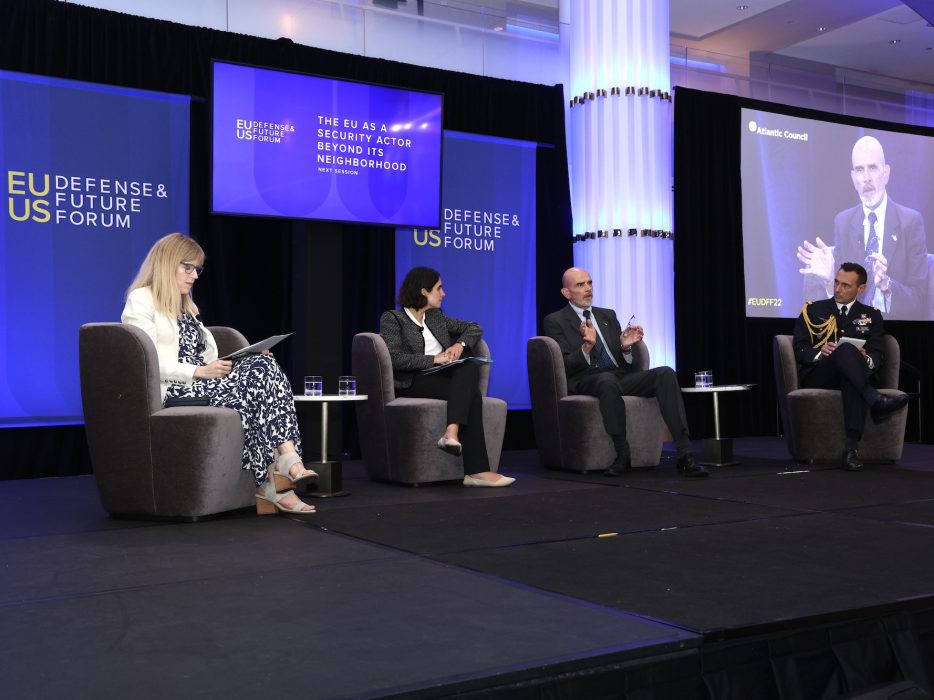
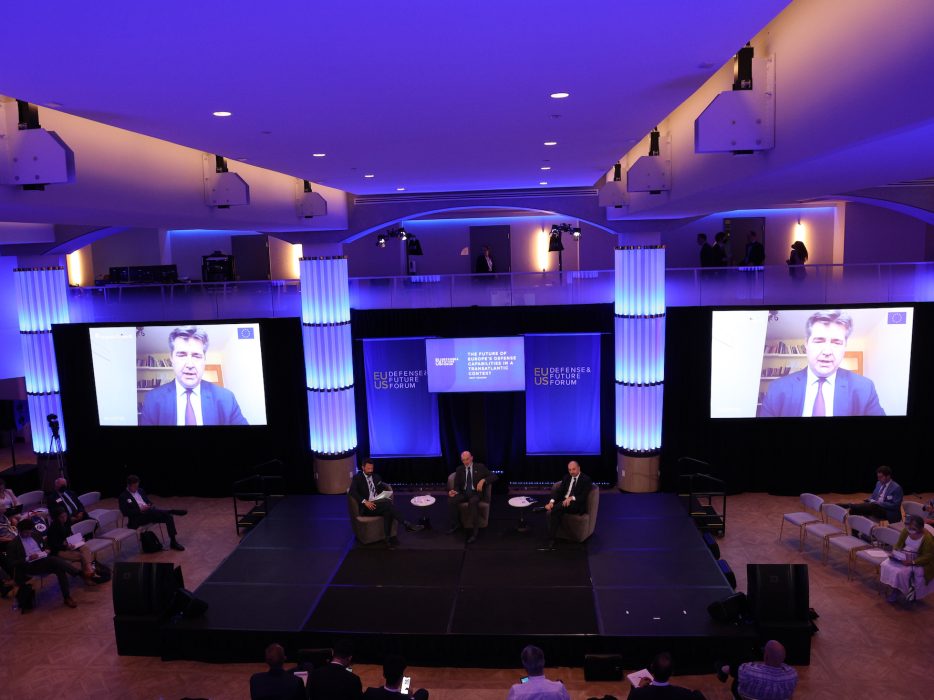
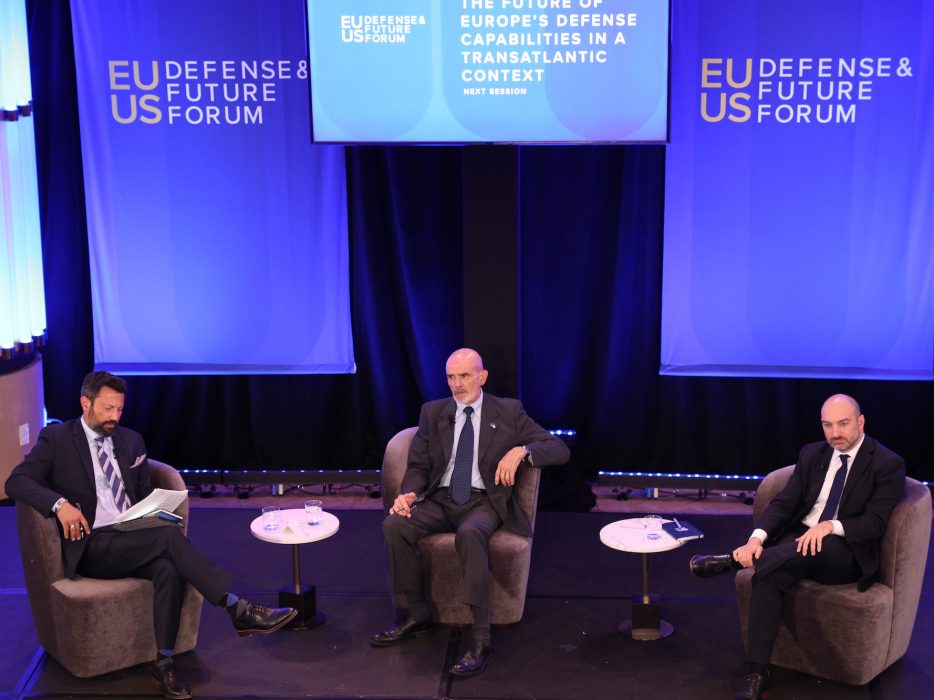
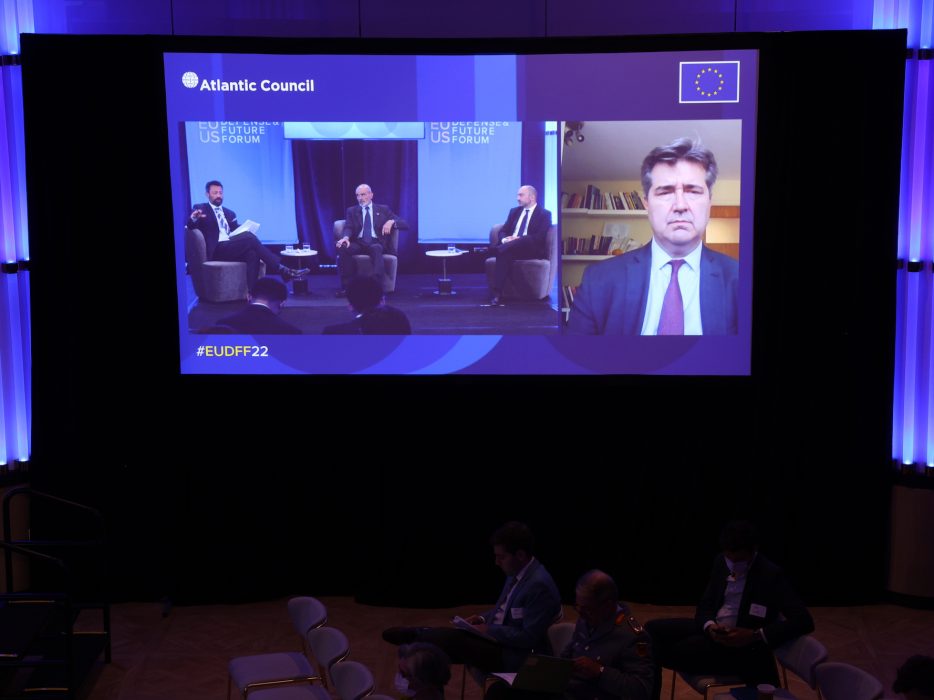
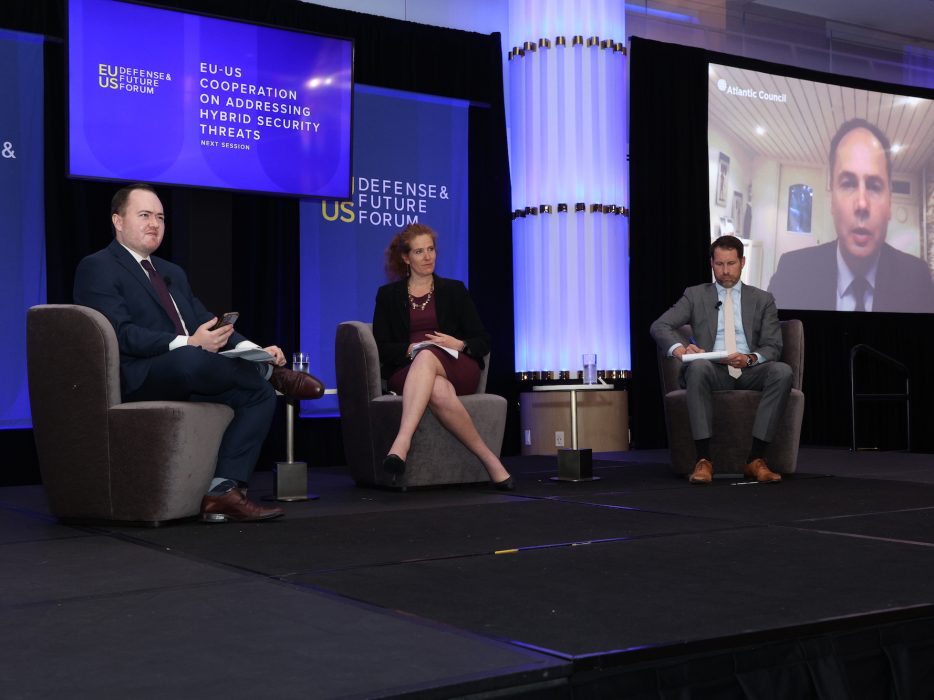
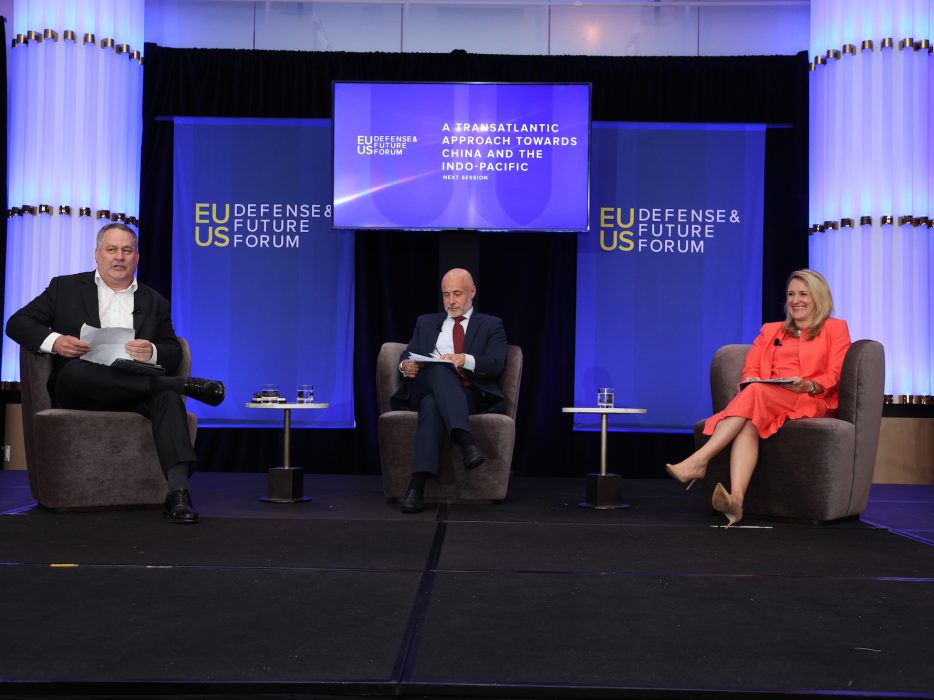
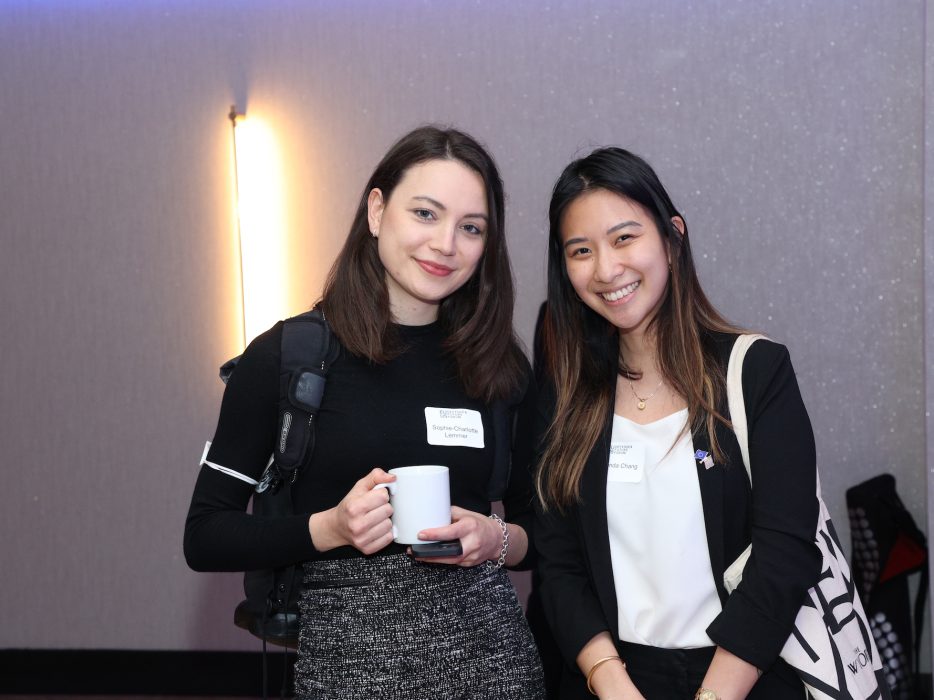
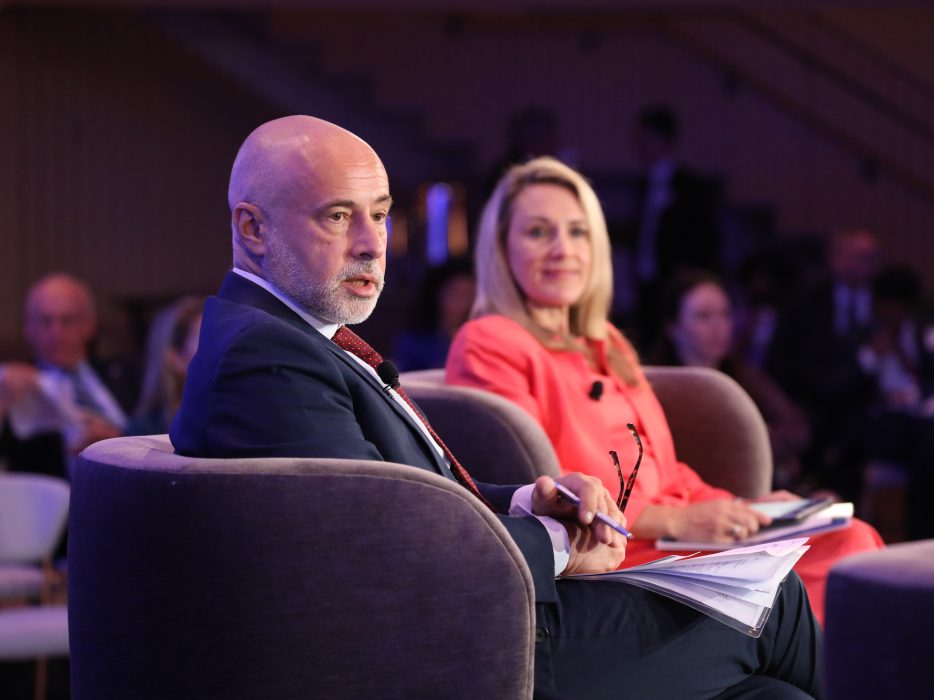
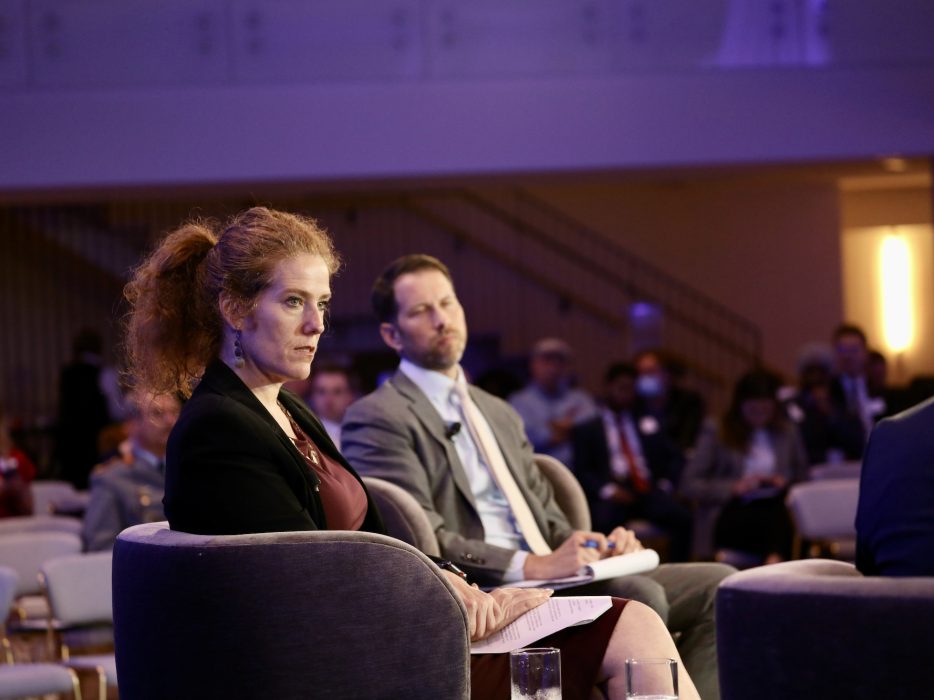
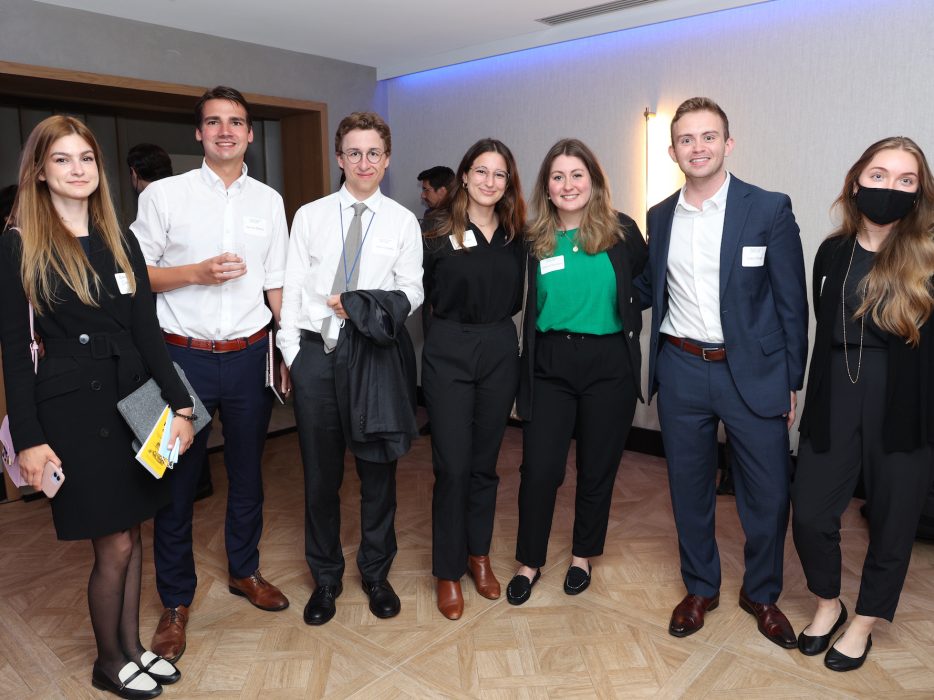
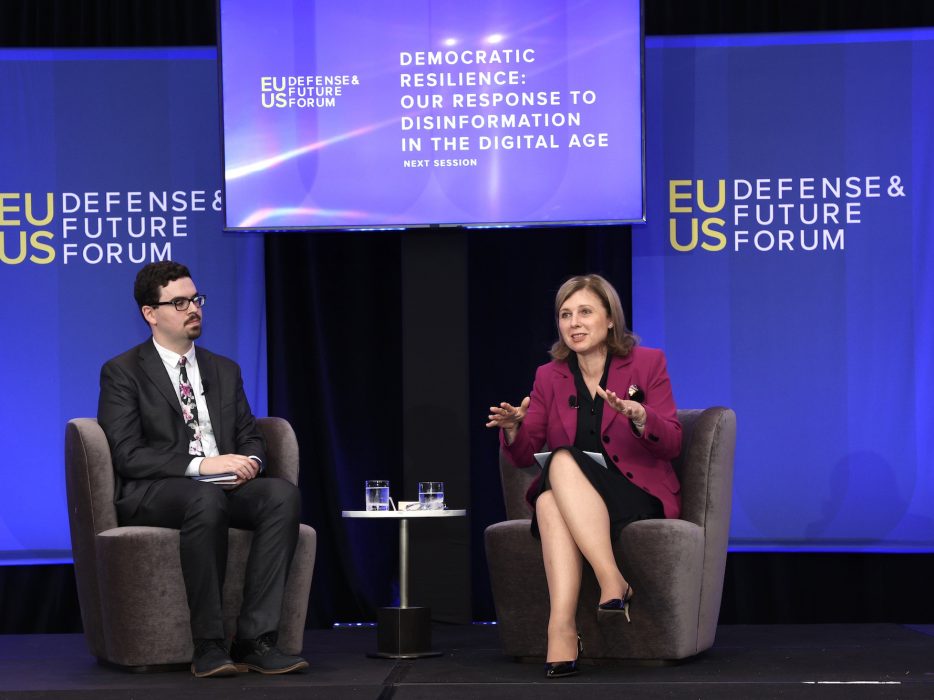
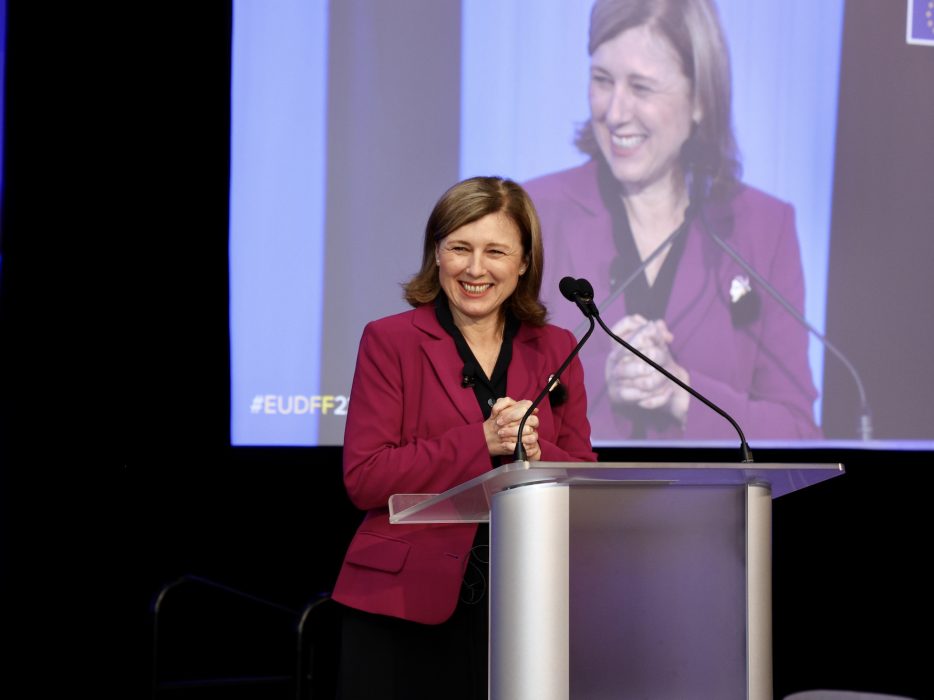
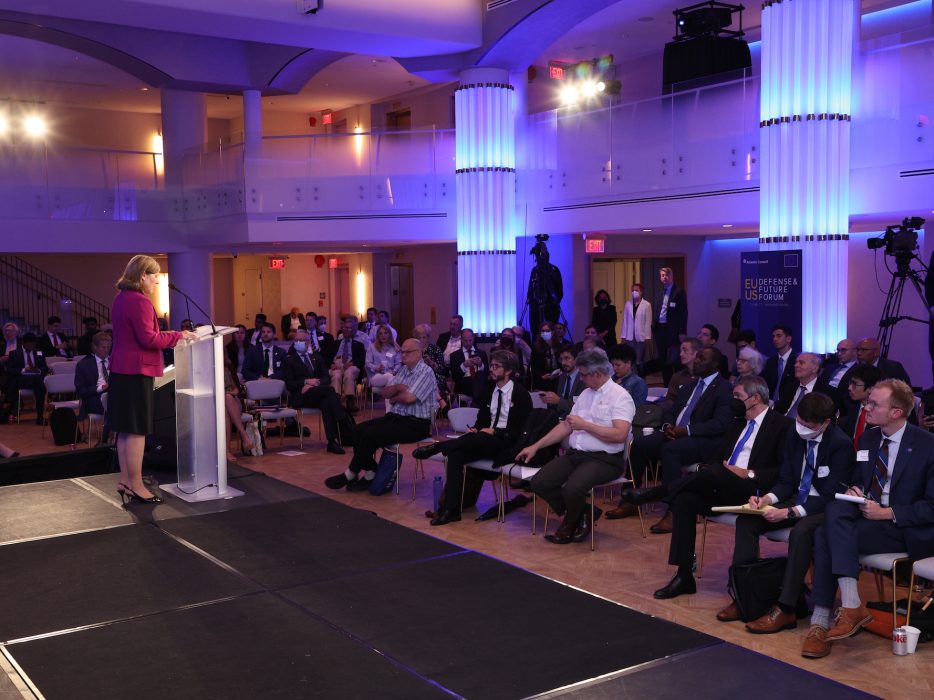
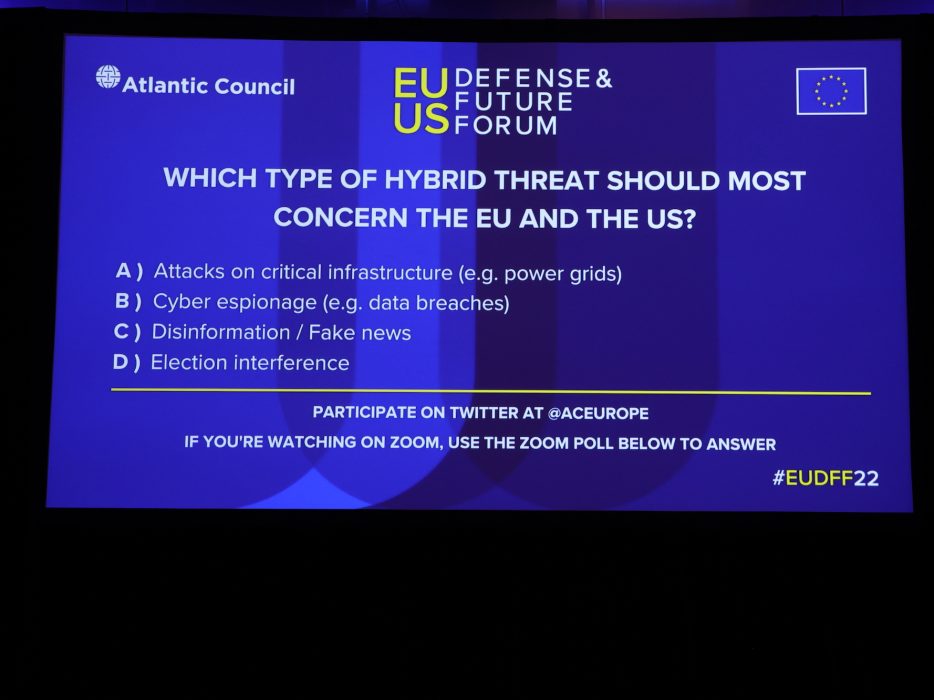
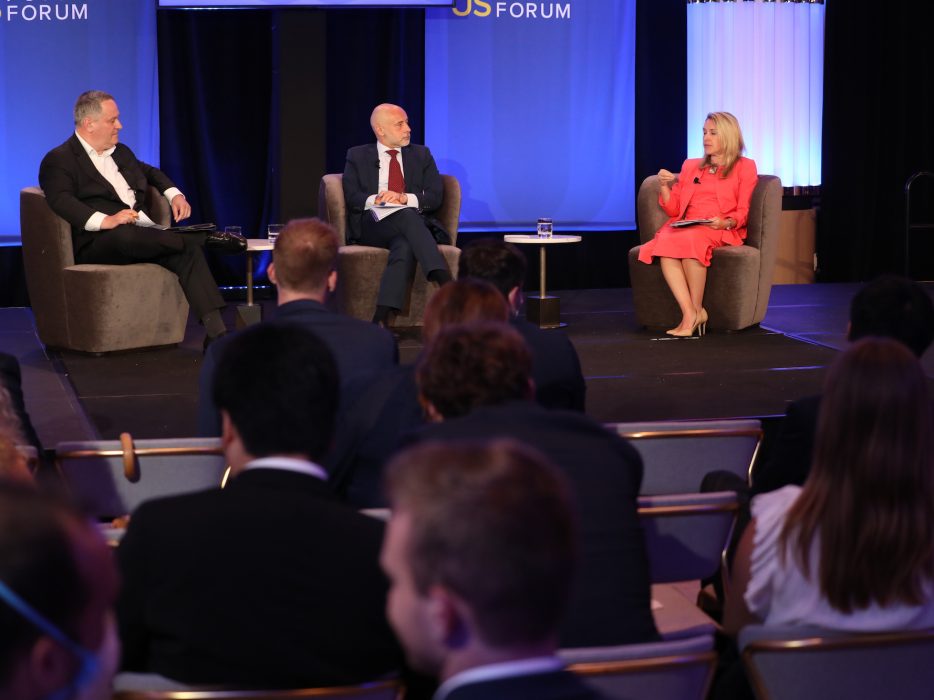
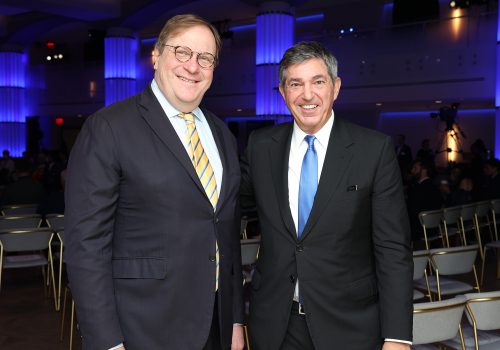
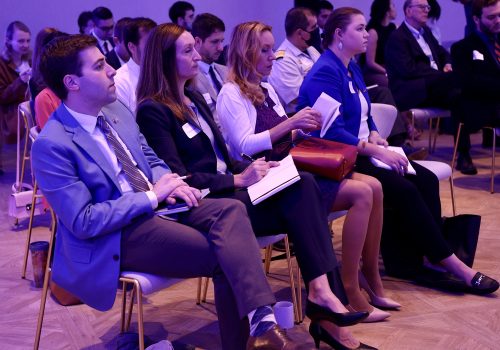
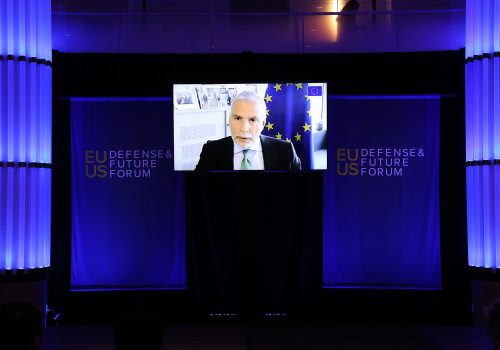
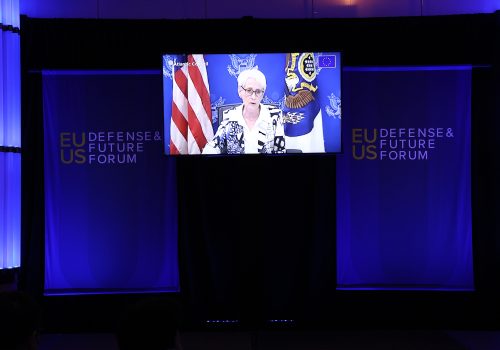
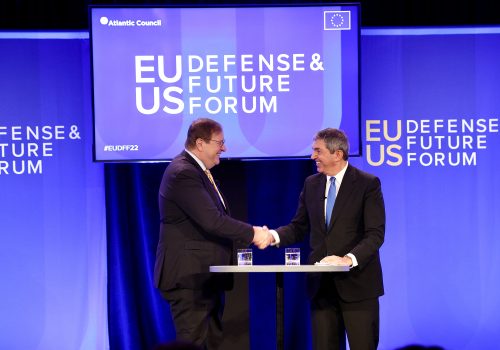
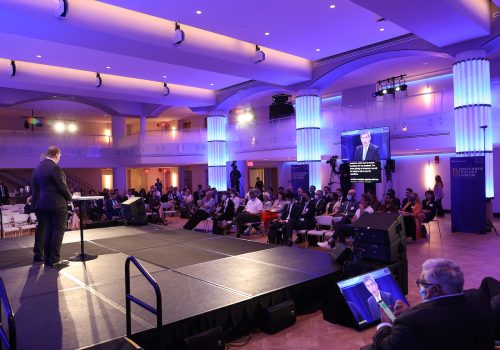
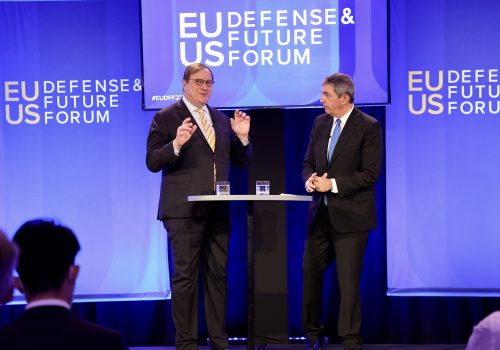
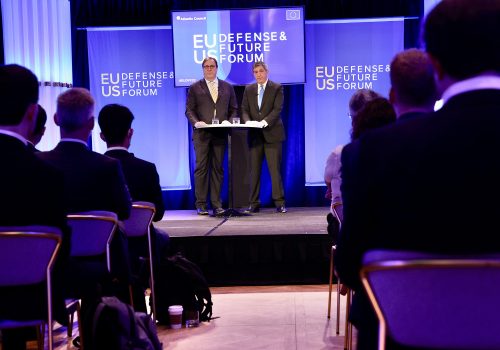
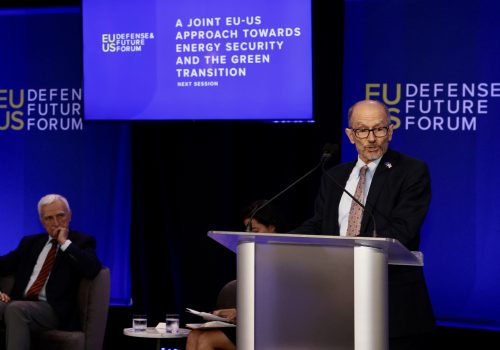
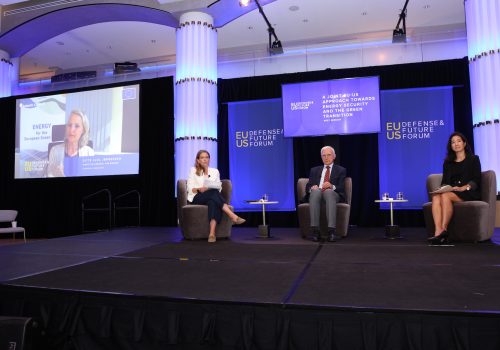
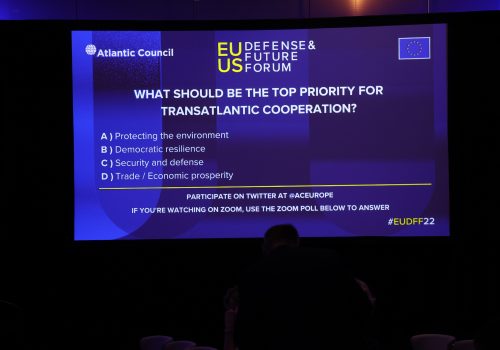
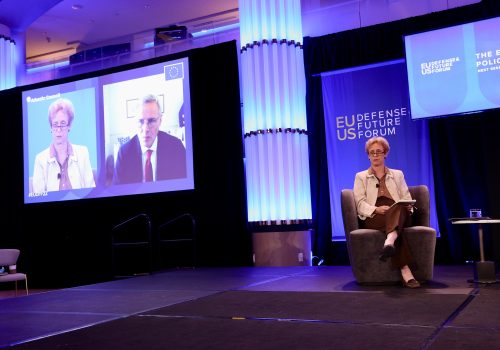
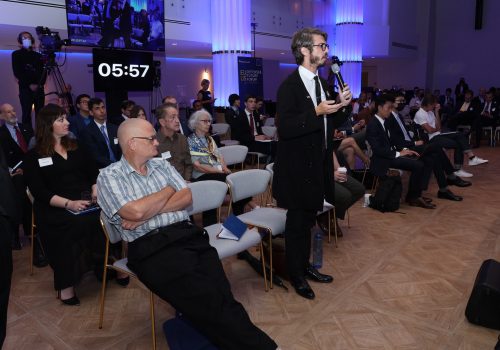
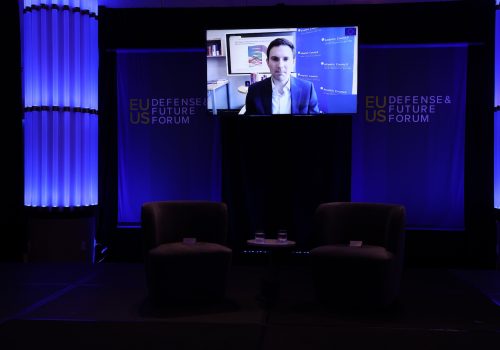
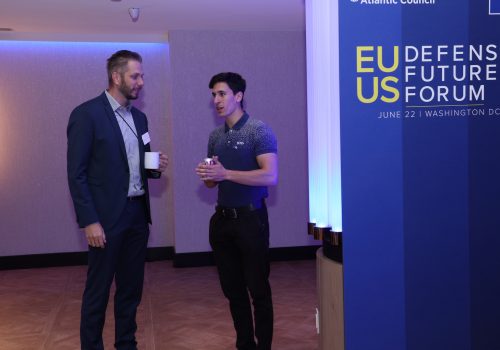
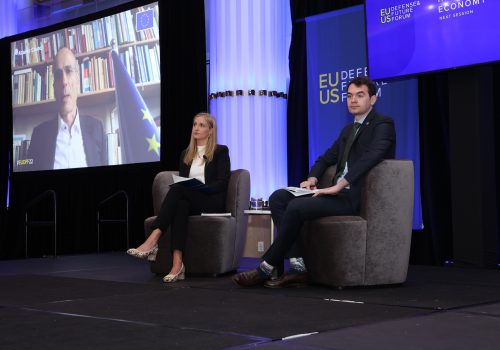
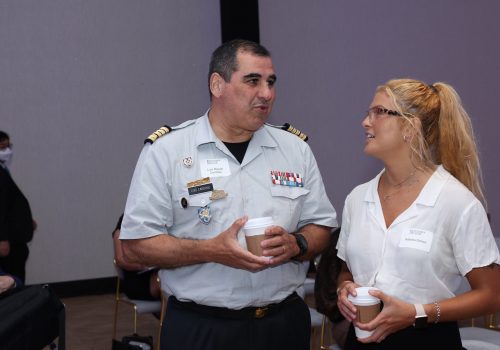
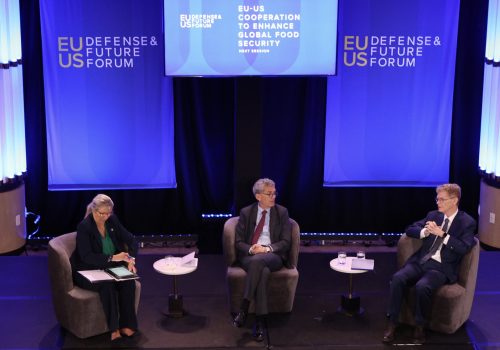
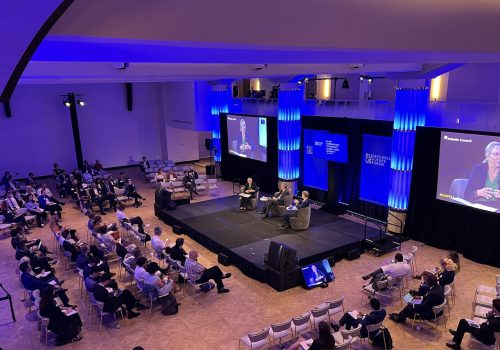
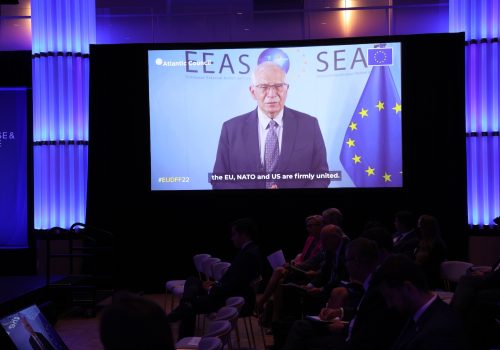
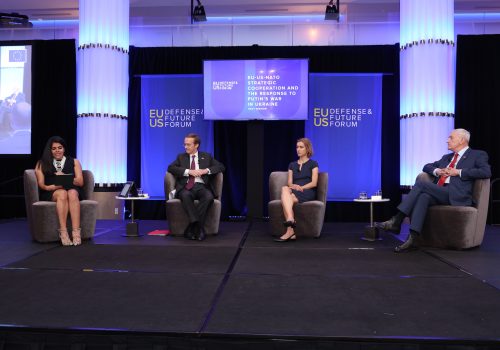
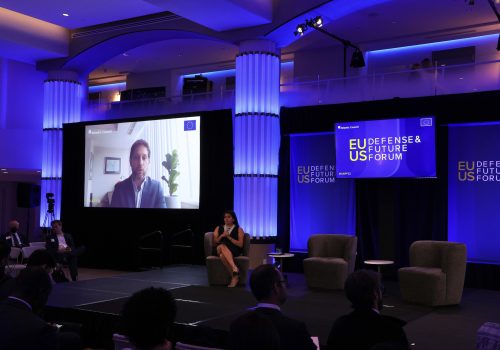
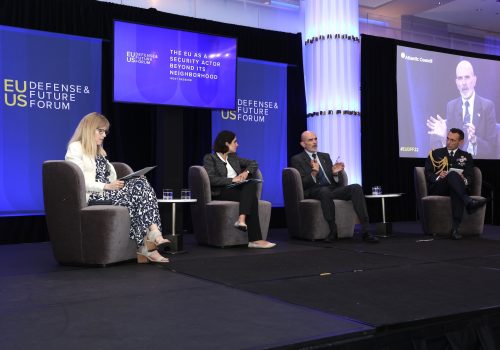
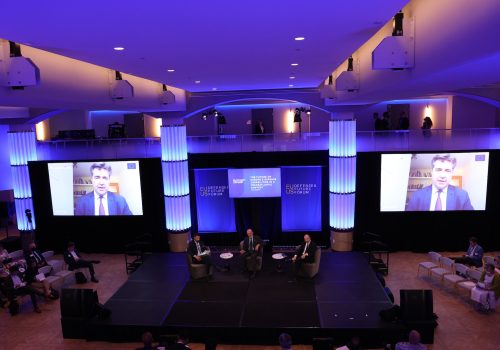
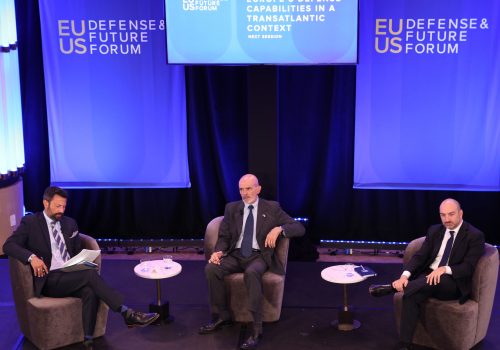
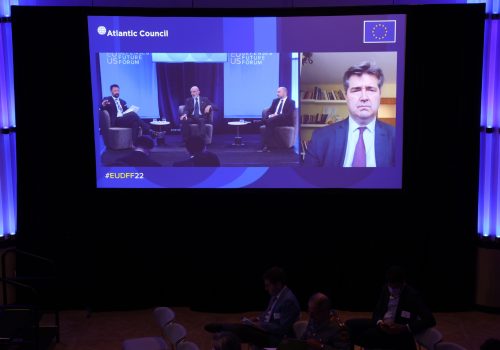
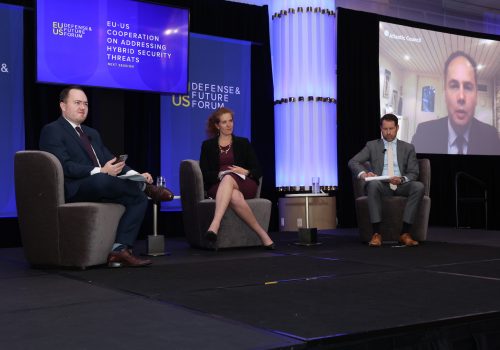
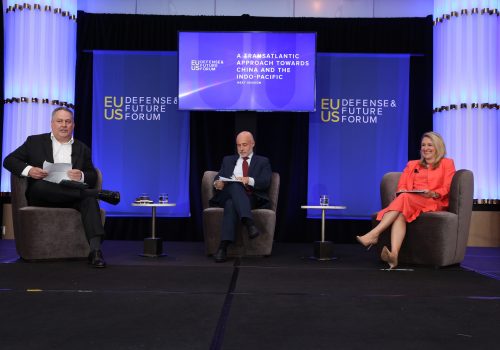
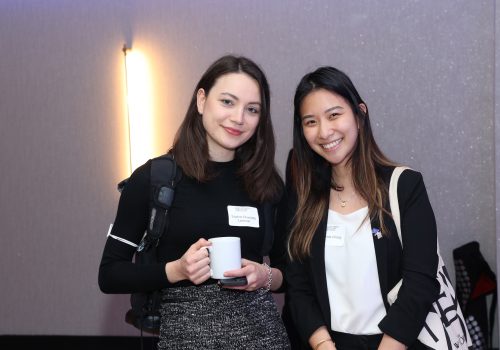
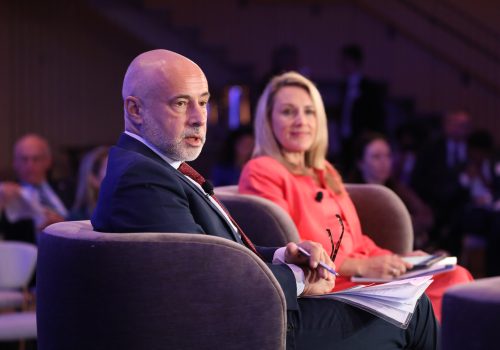
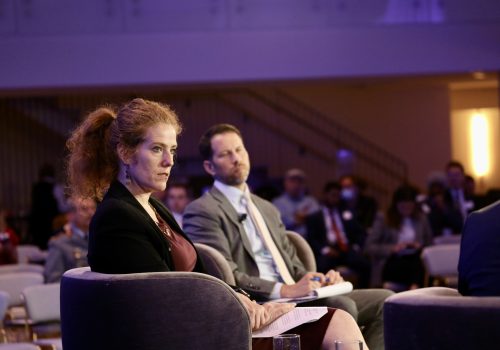
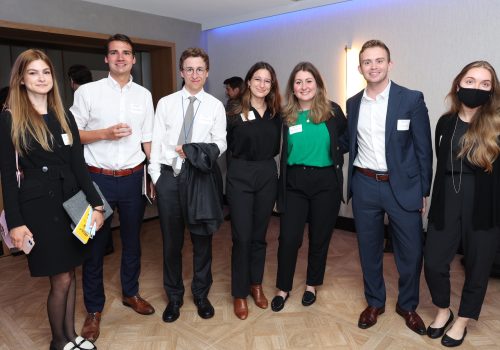
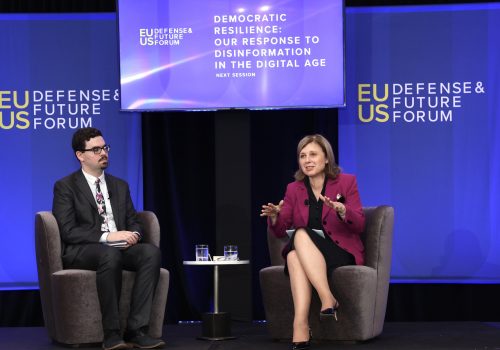
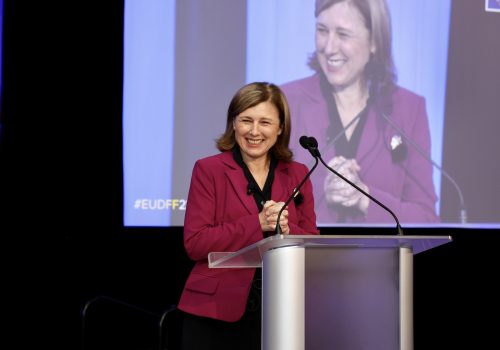
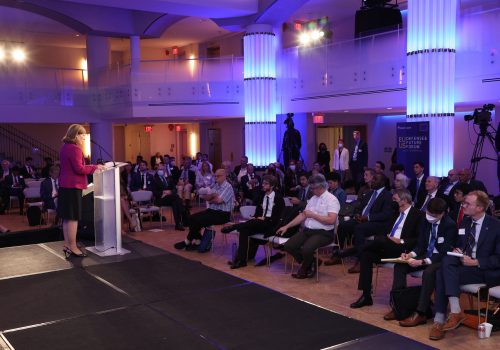
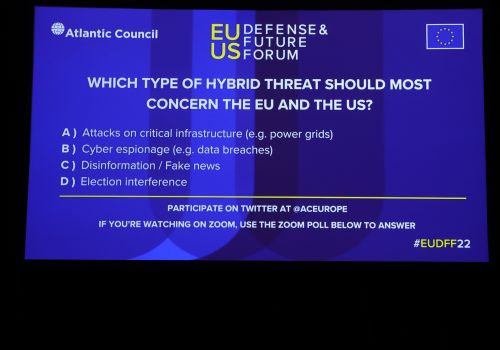
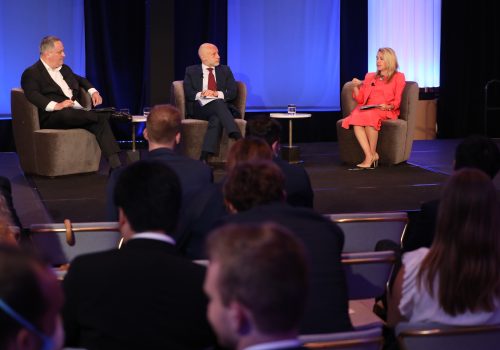
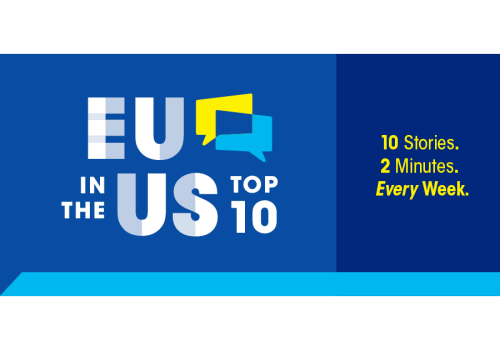
Follow the conversation on Twitter with @ACEurope and @EUintheUS using #EUDFF22